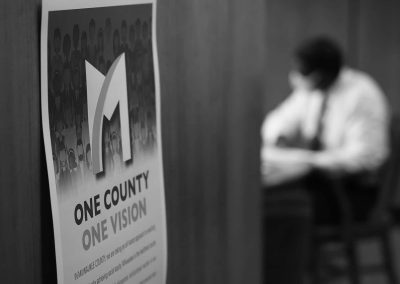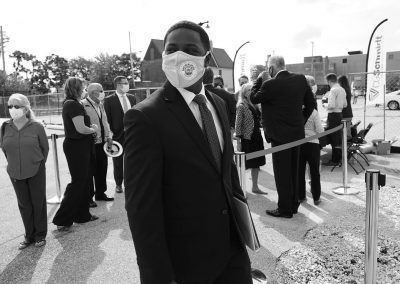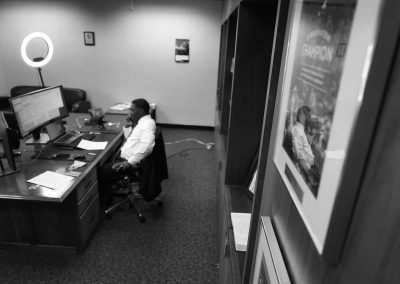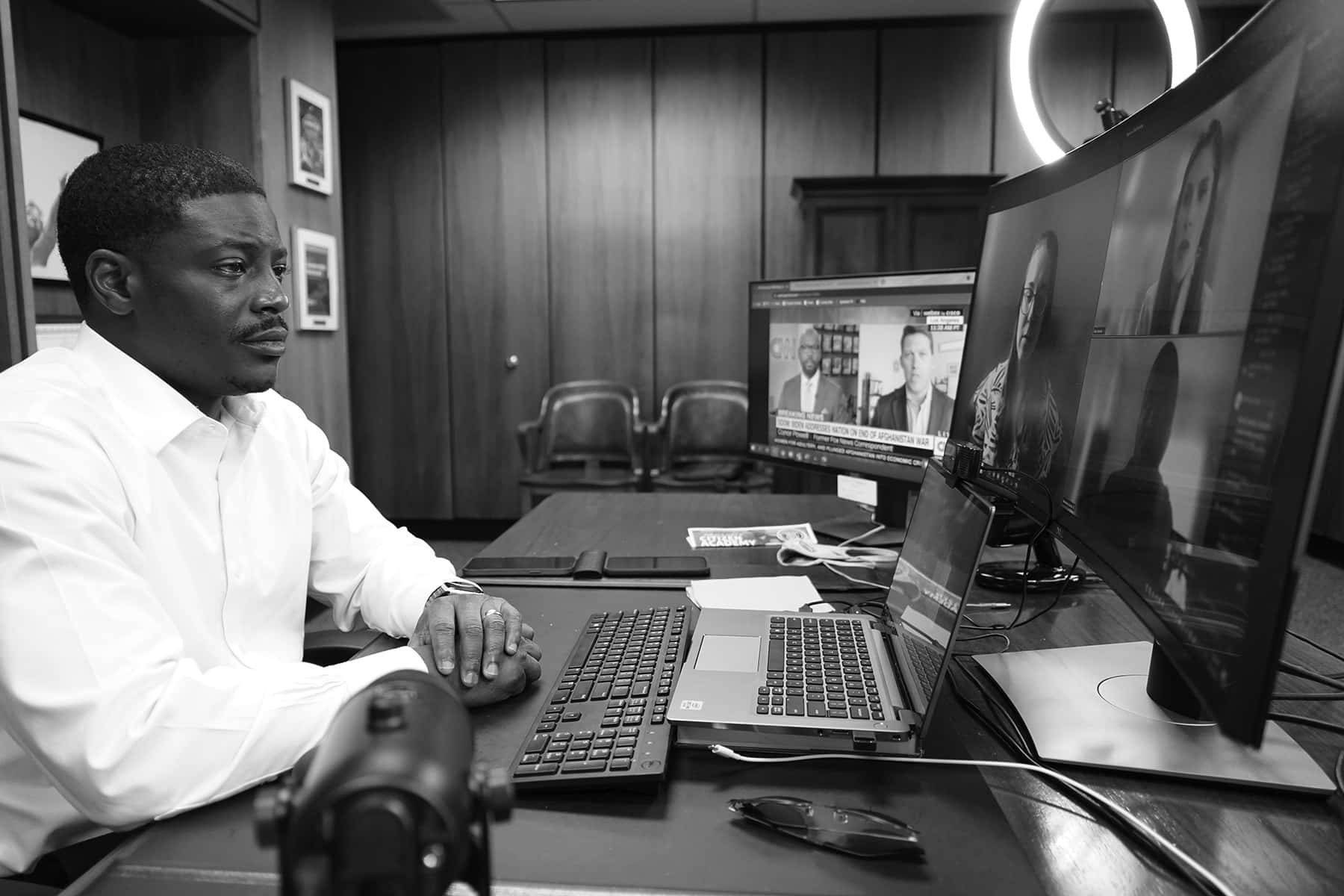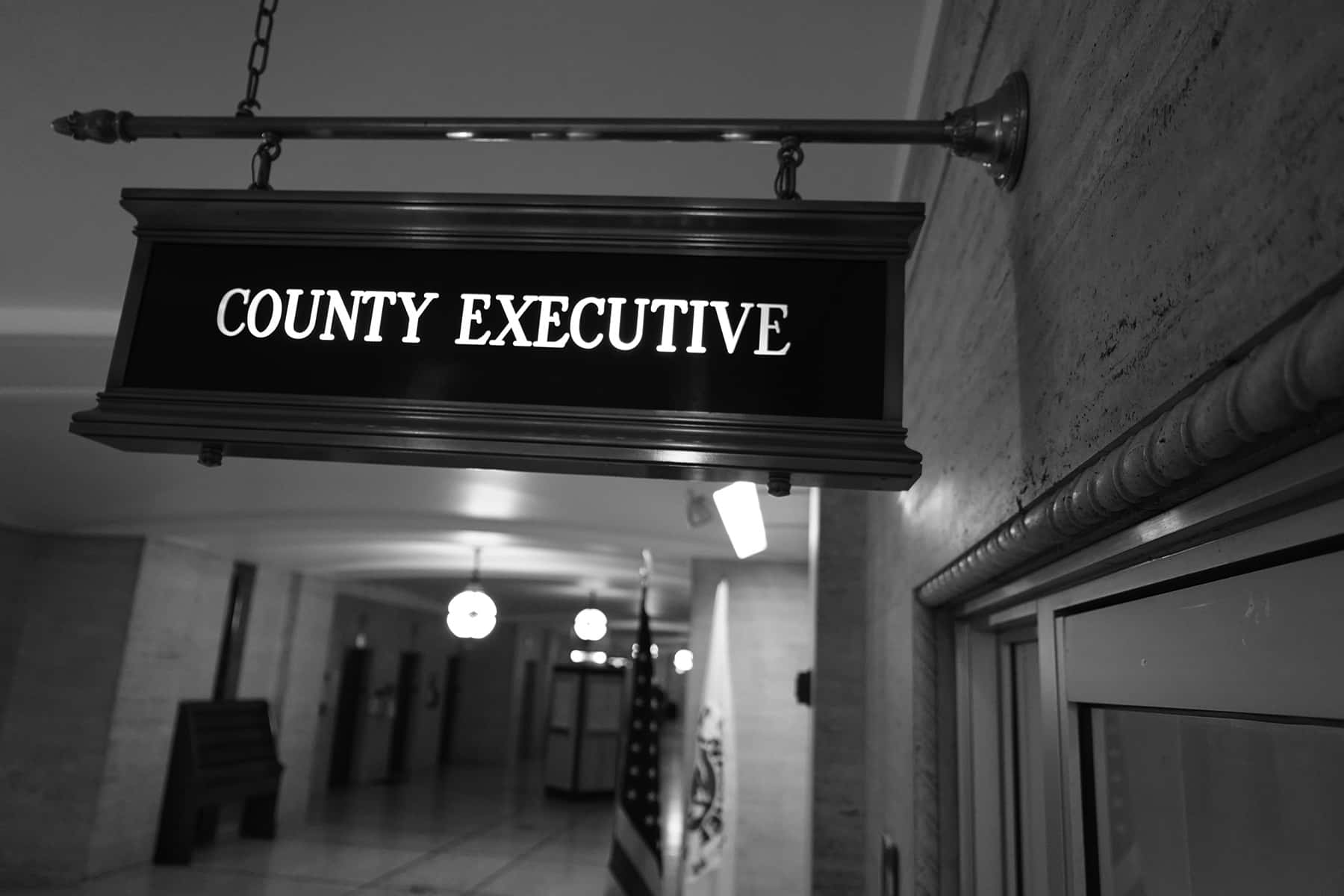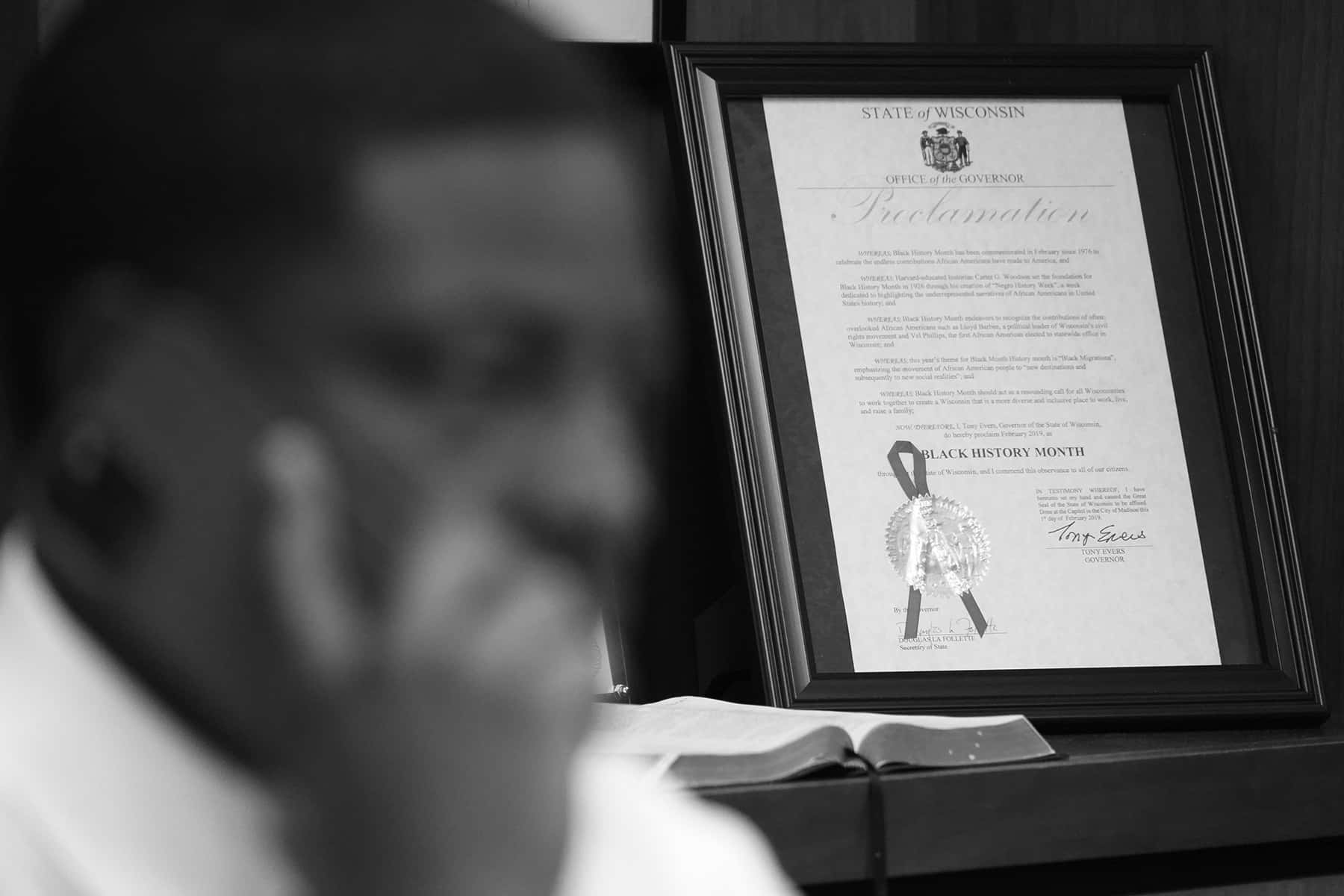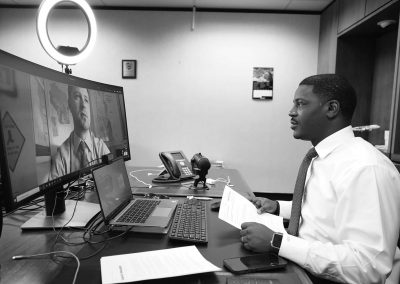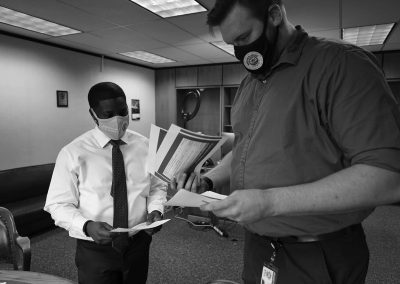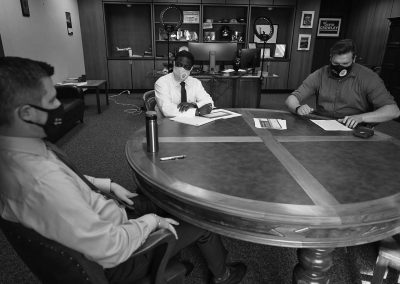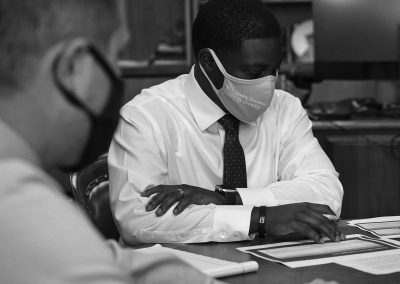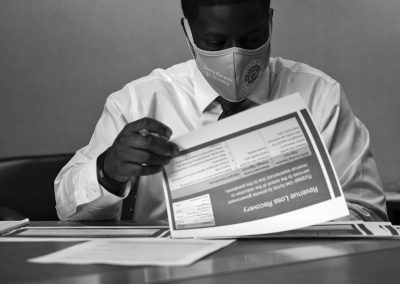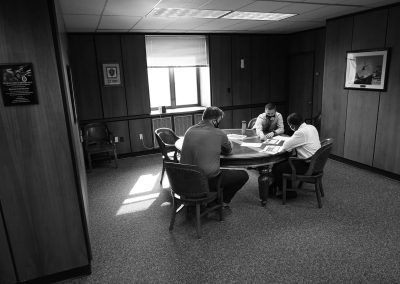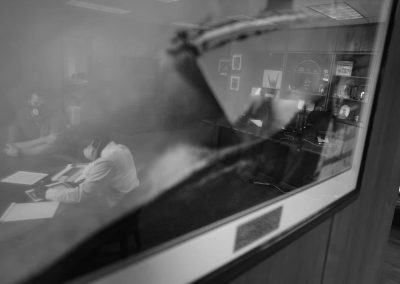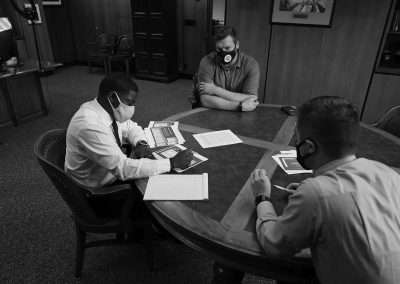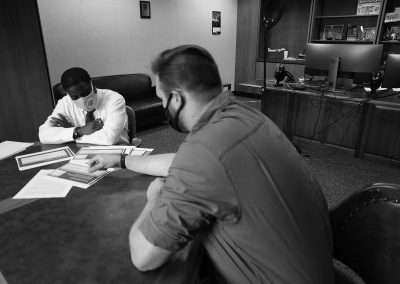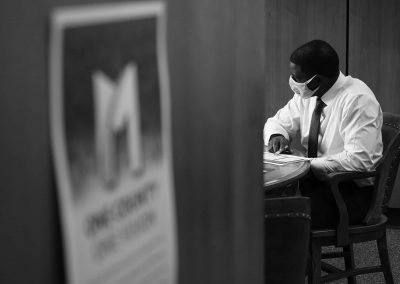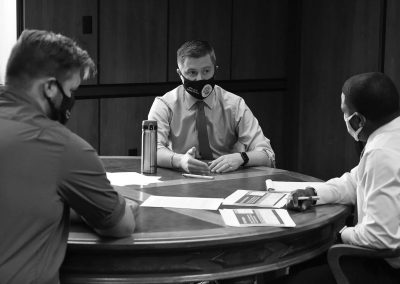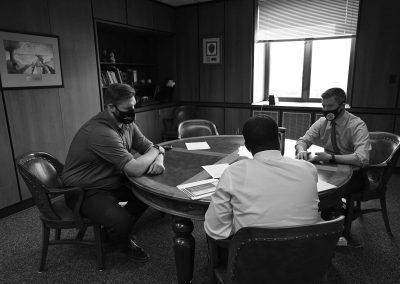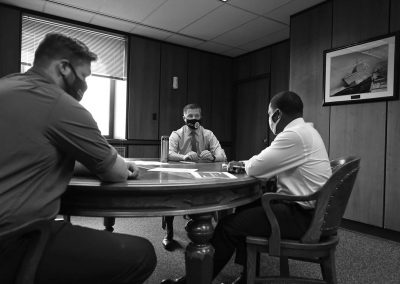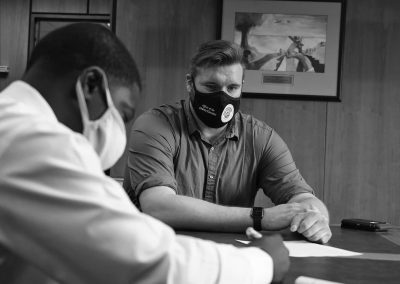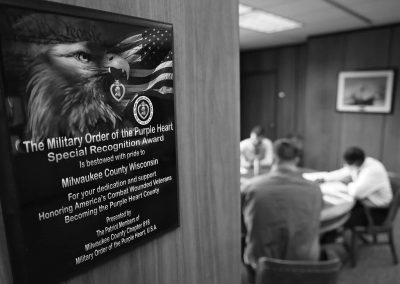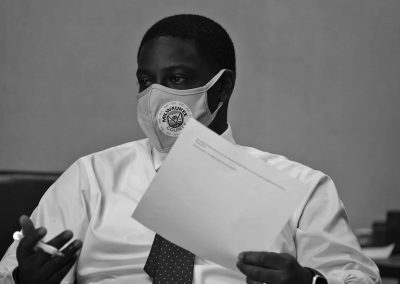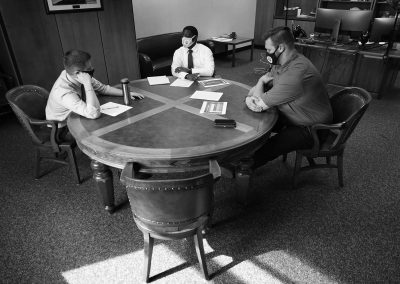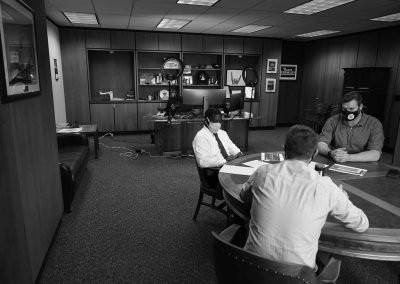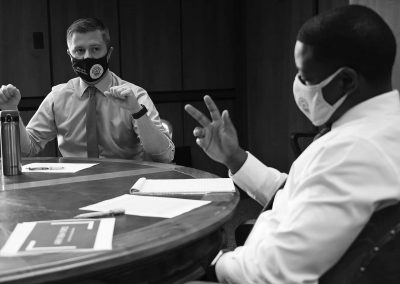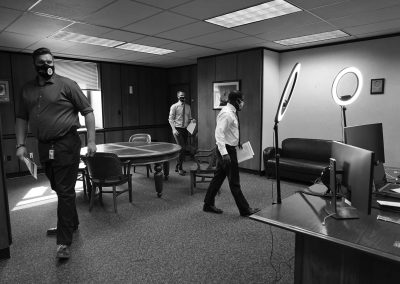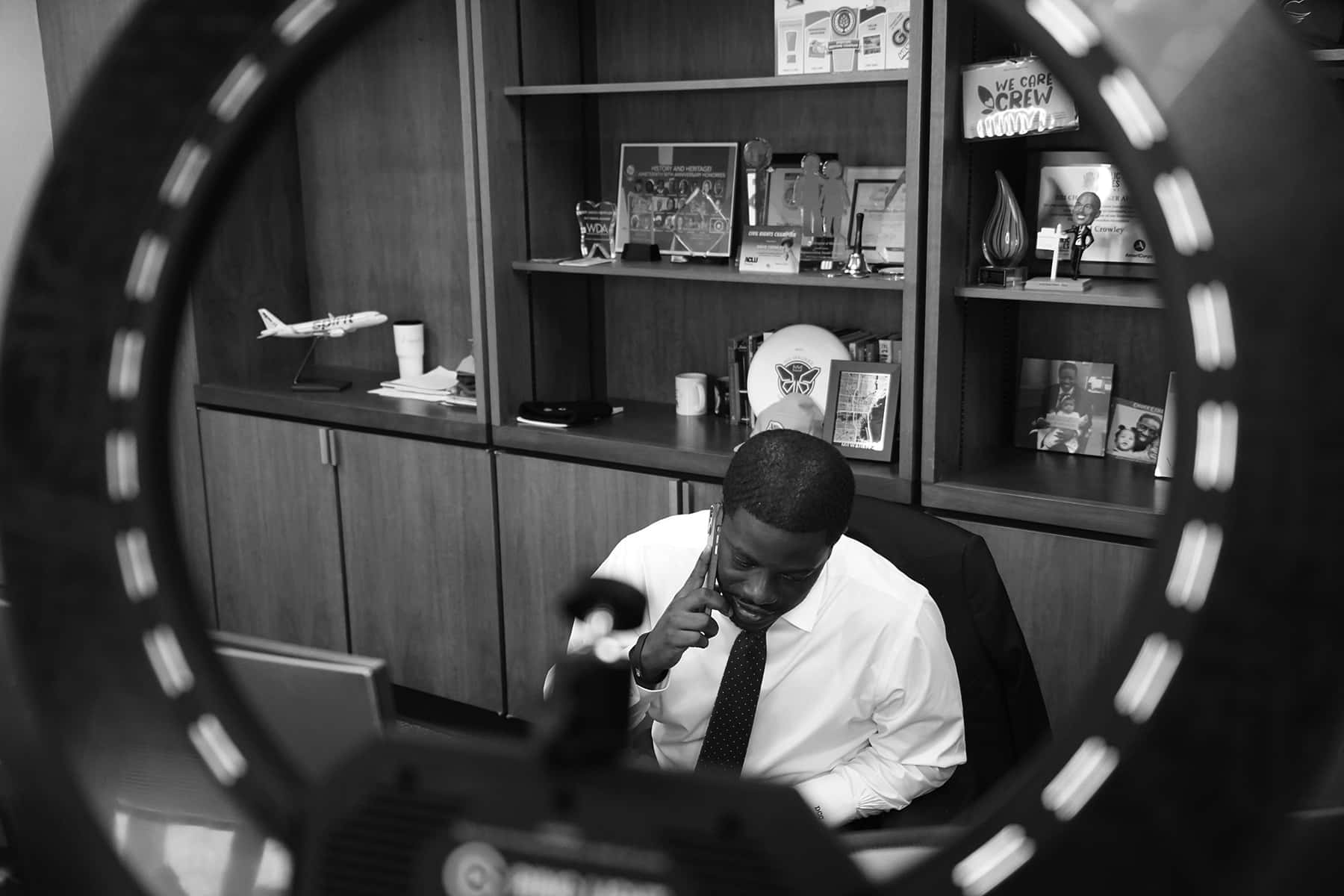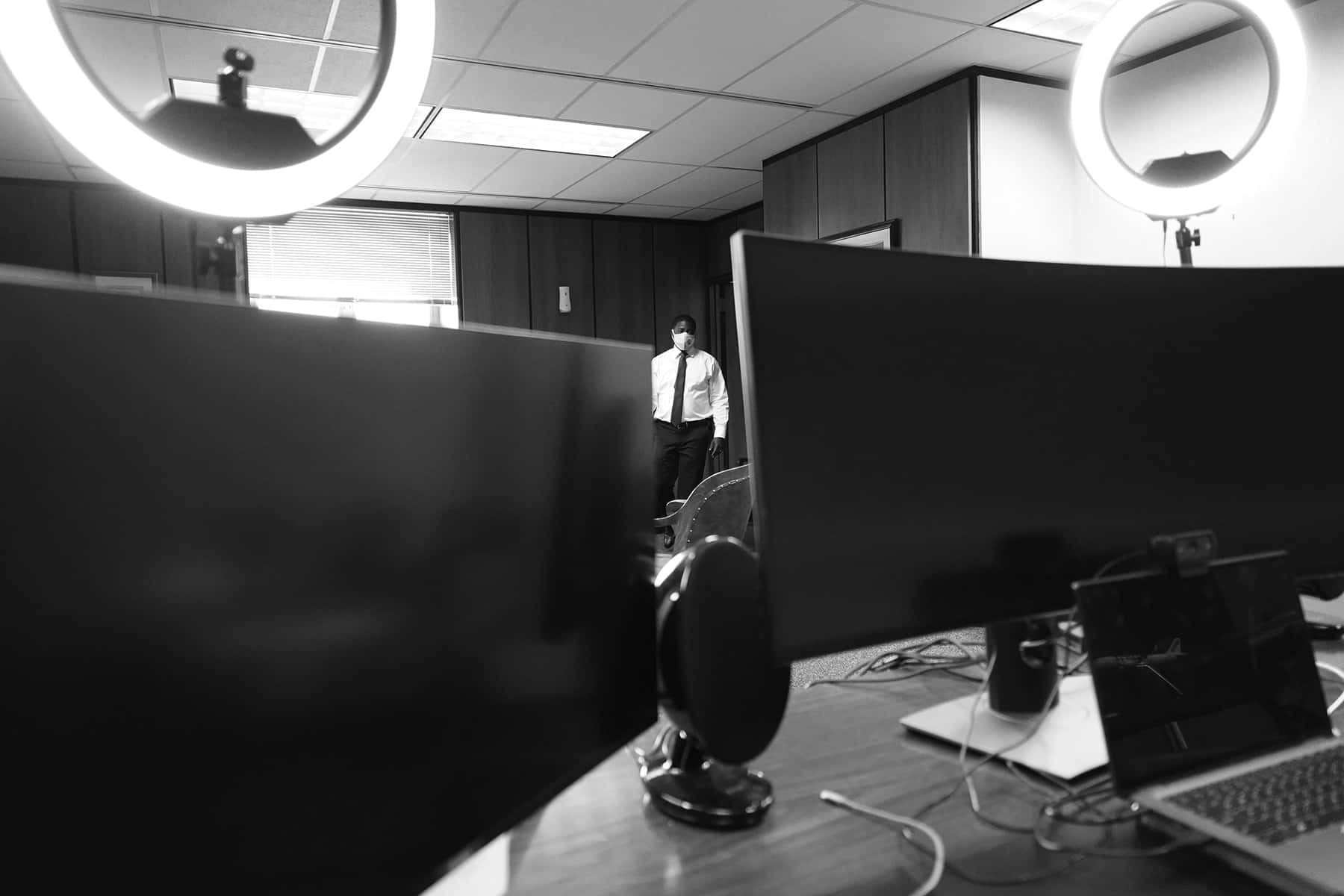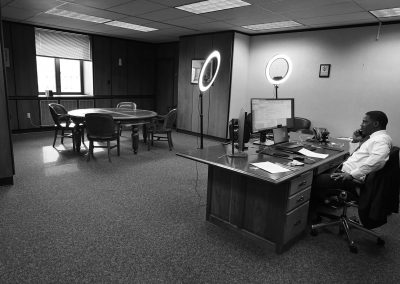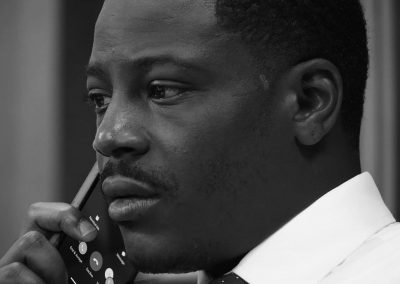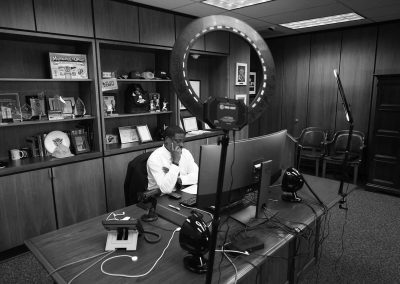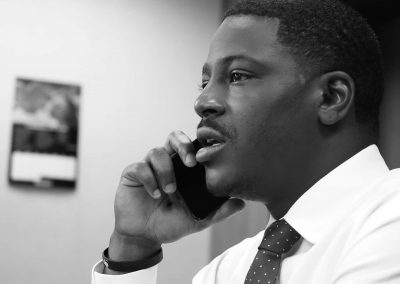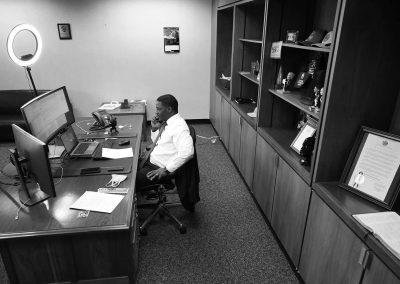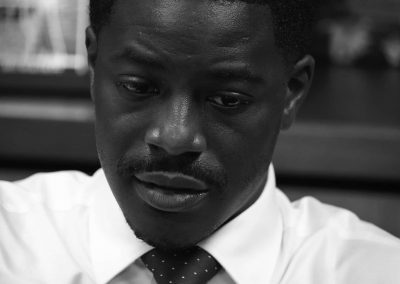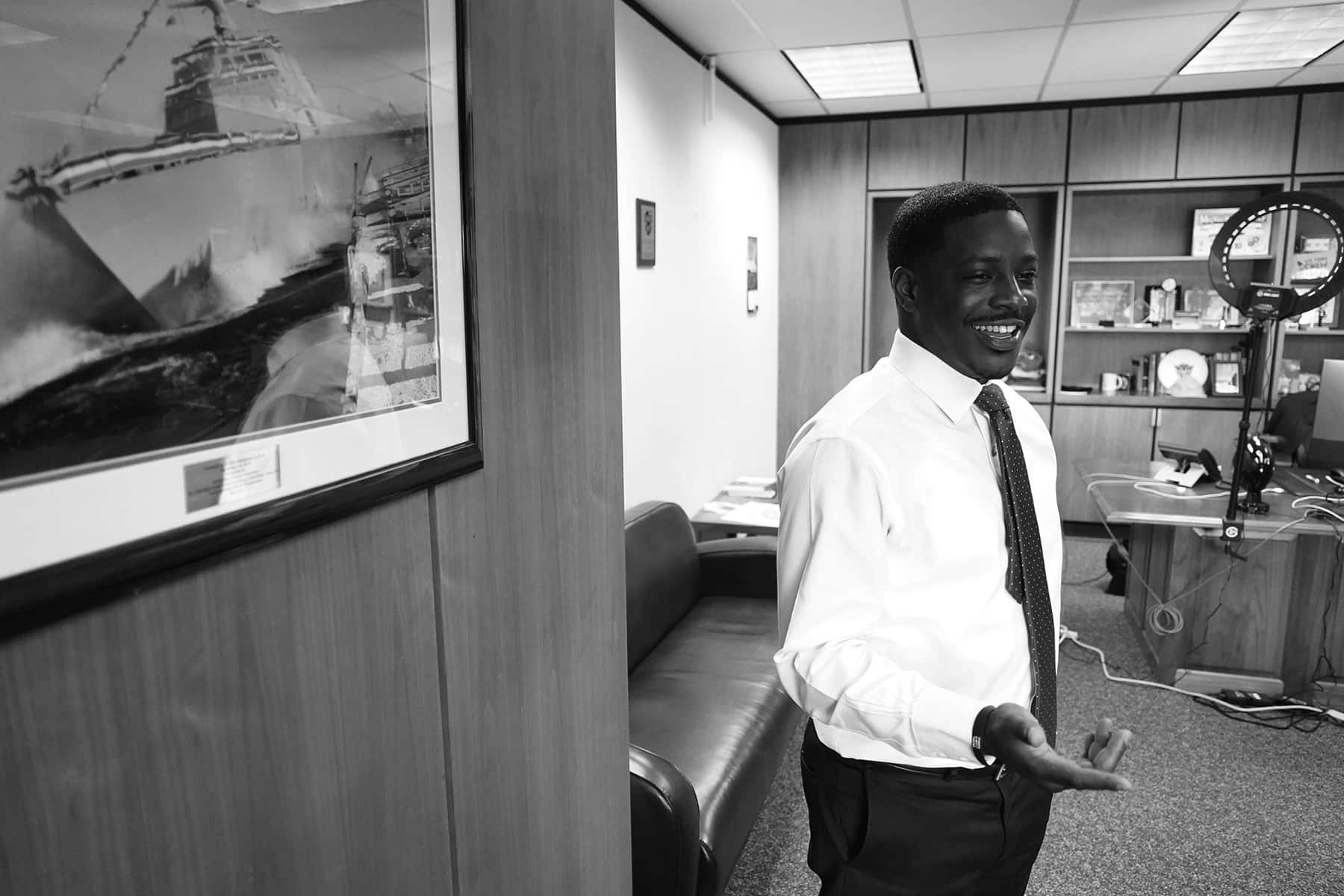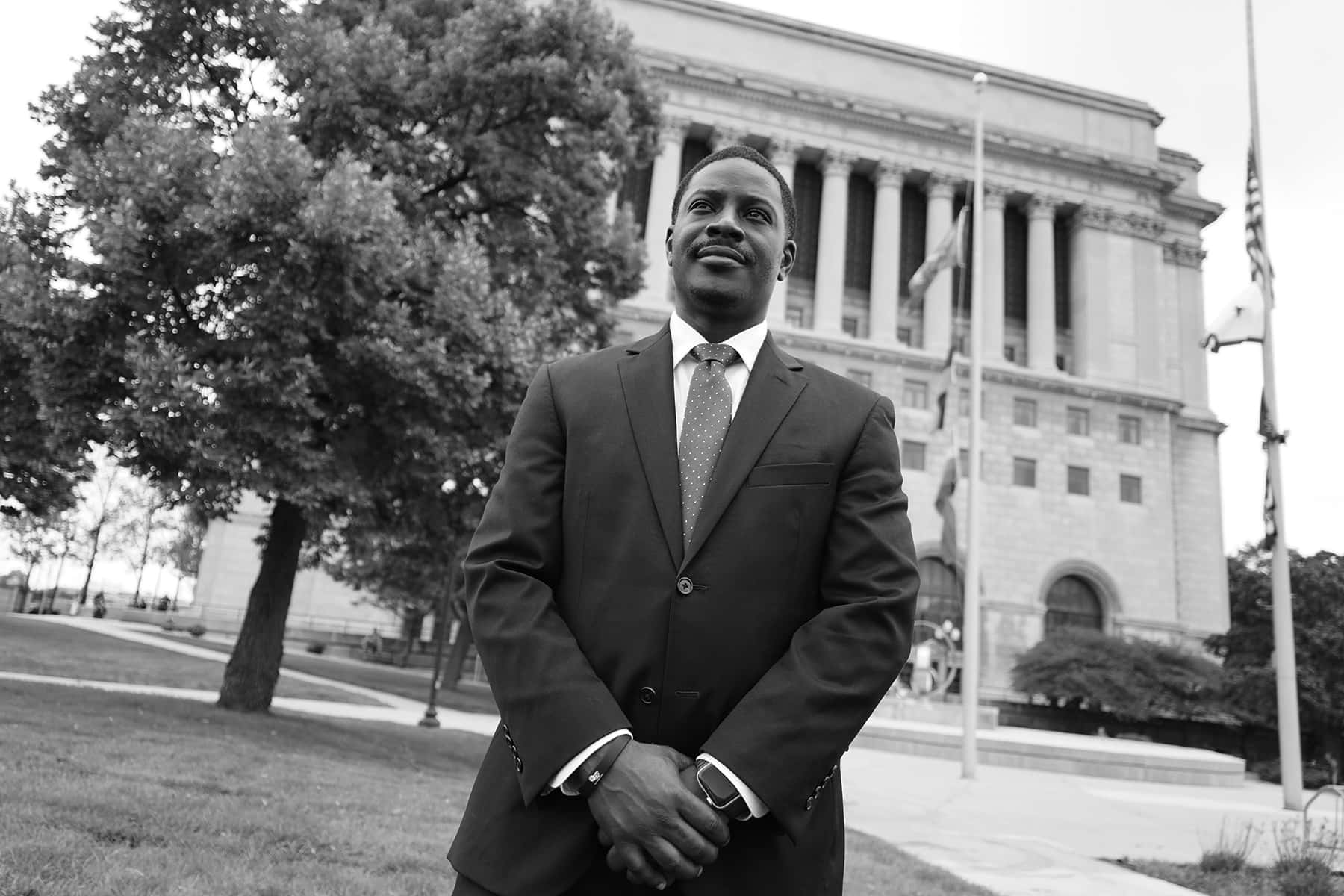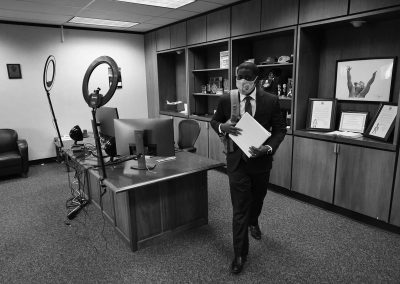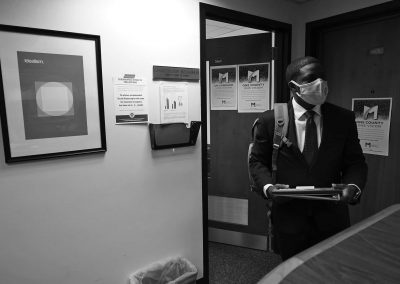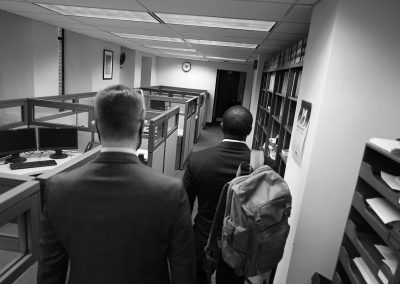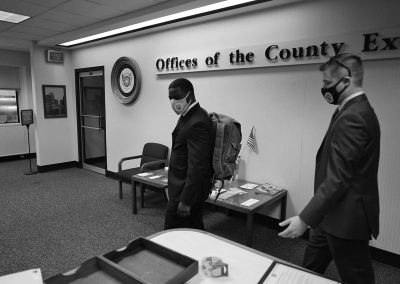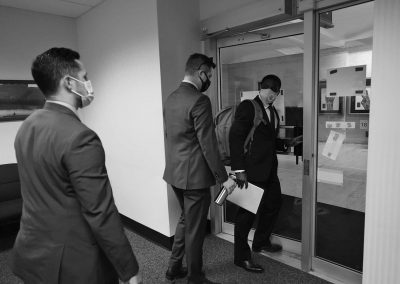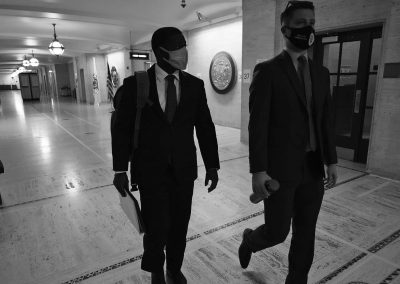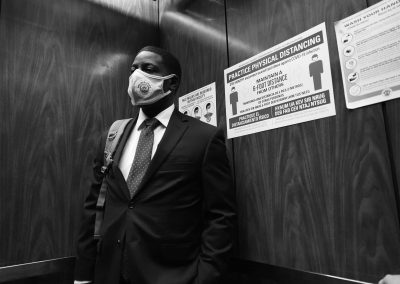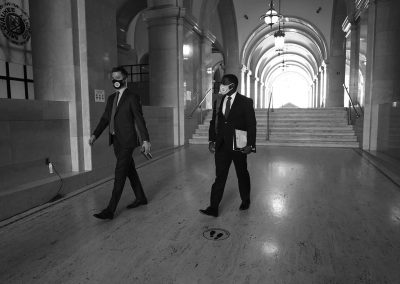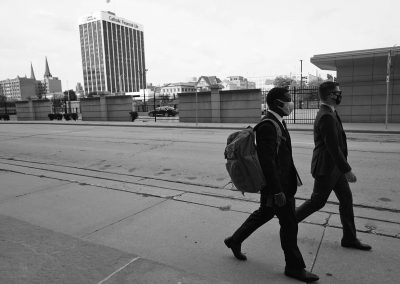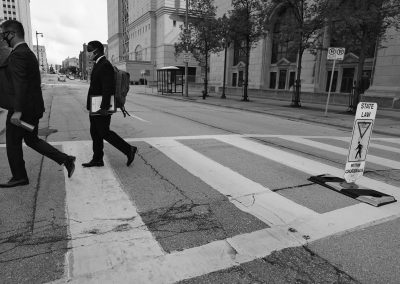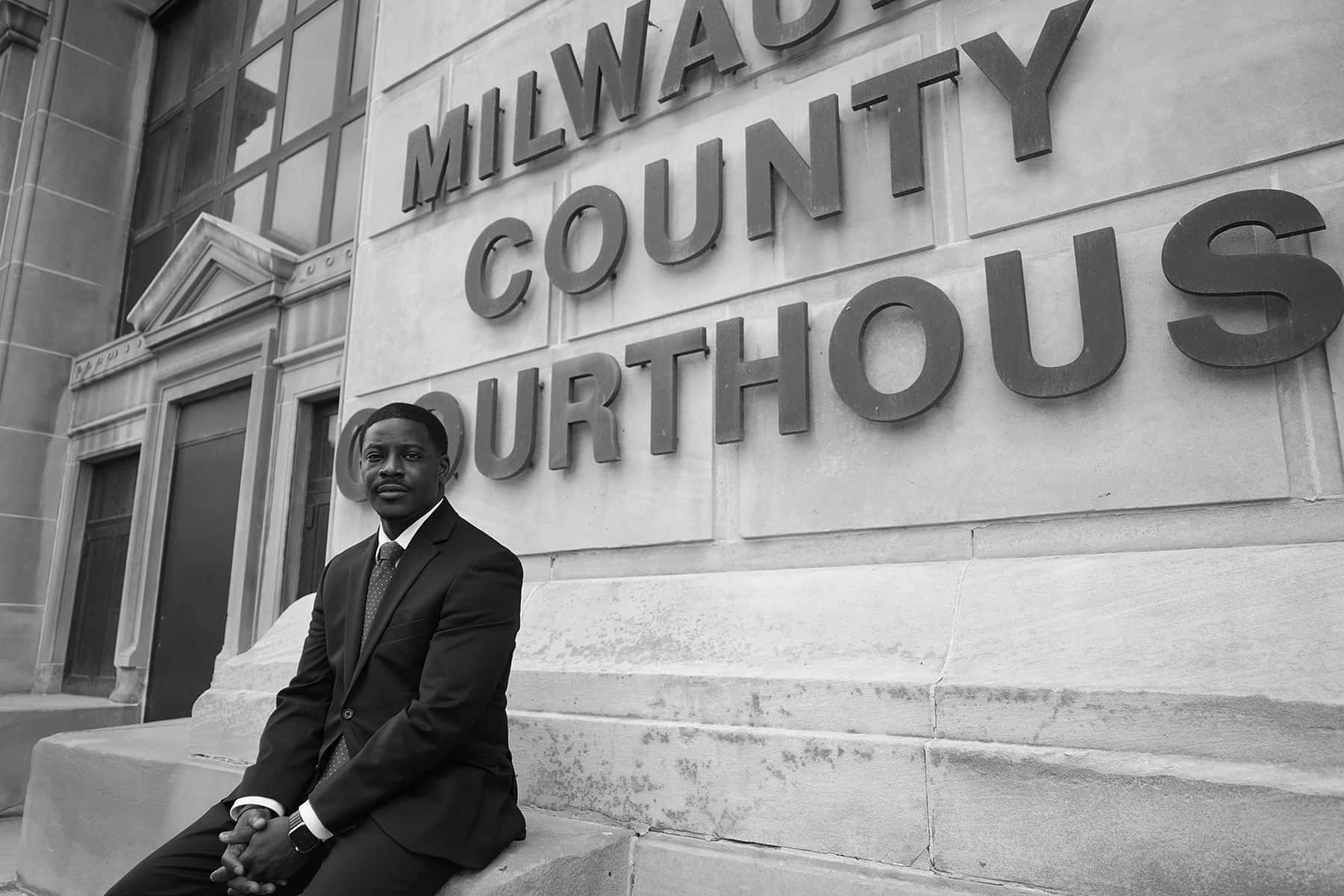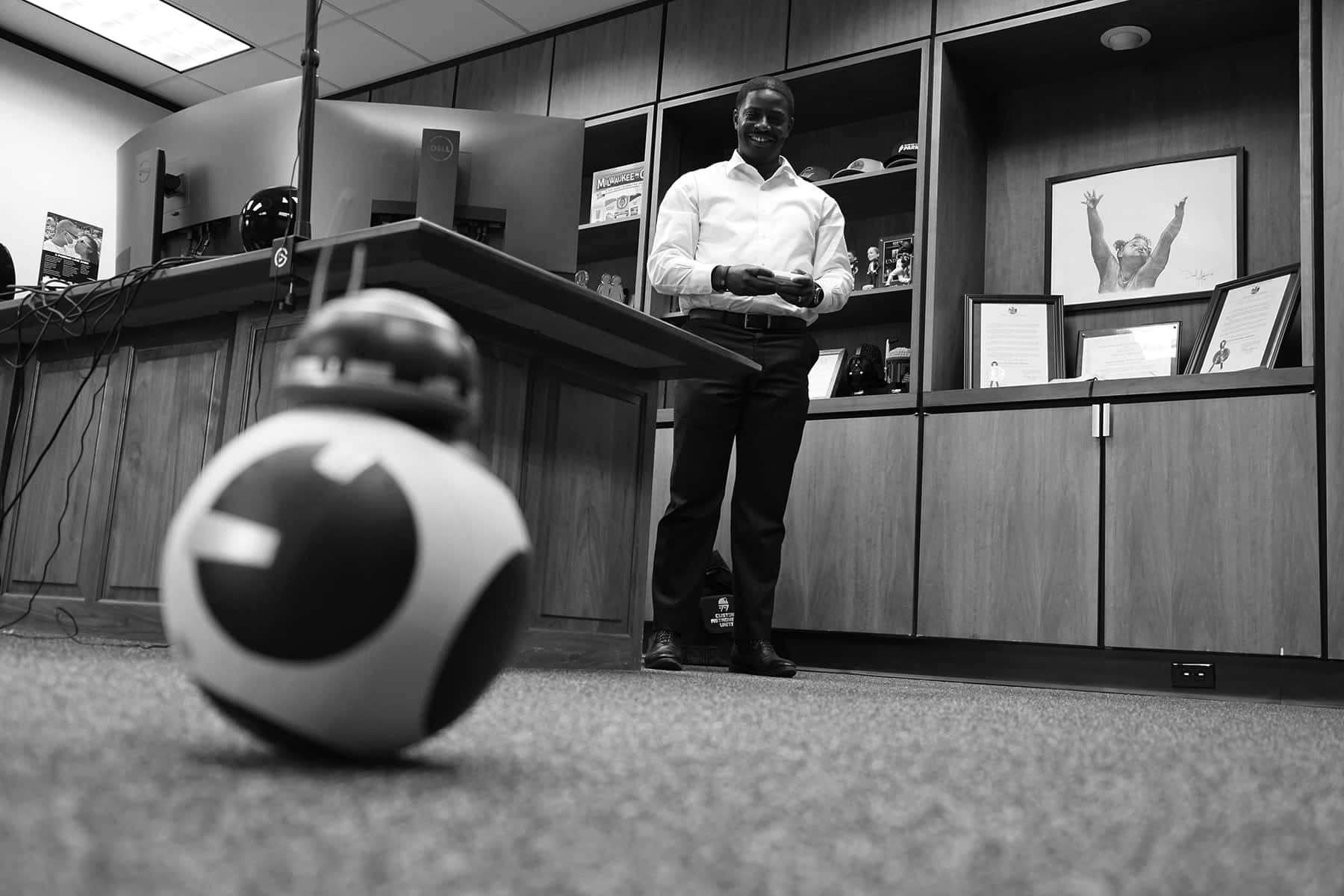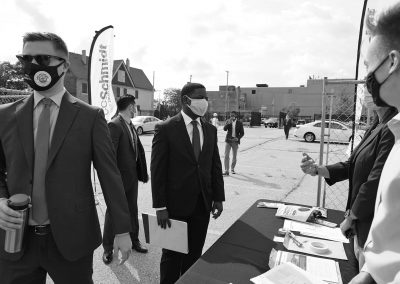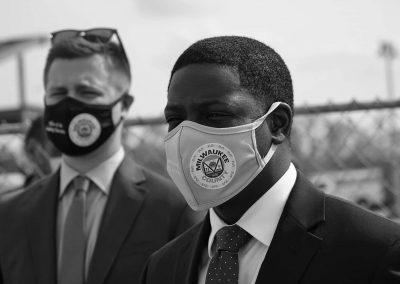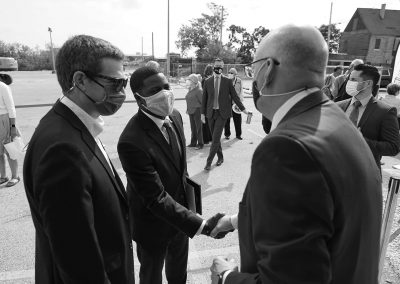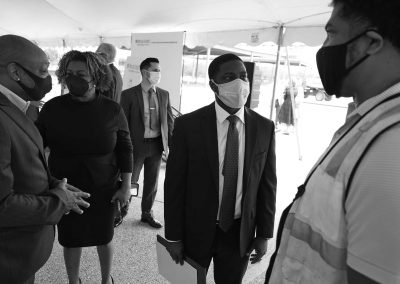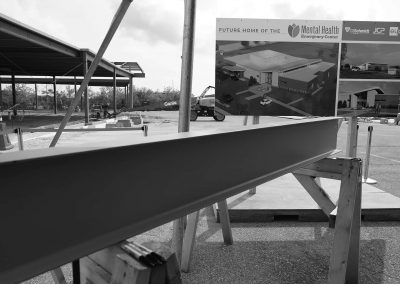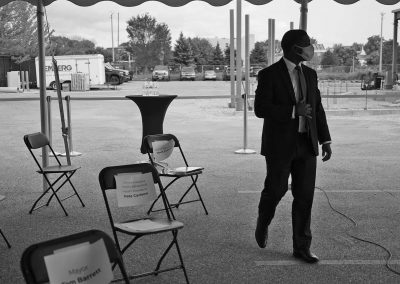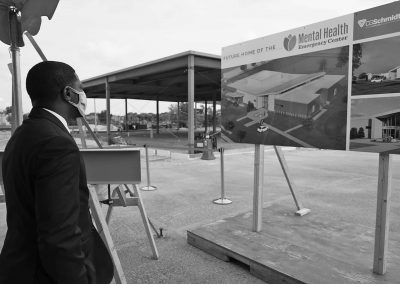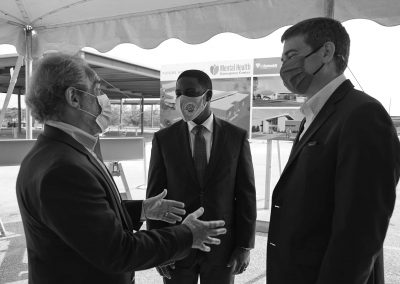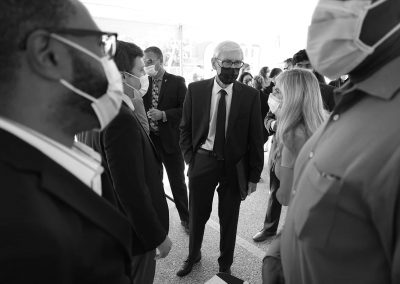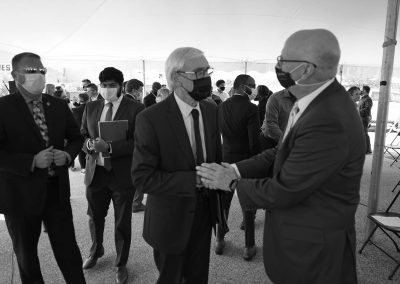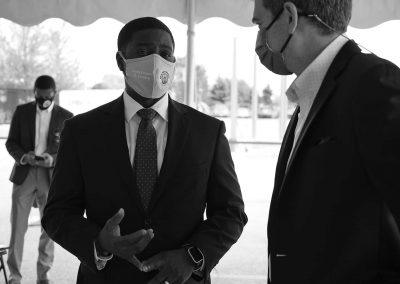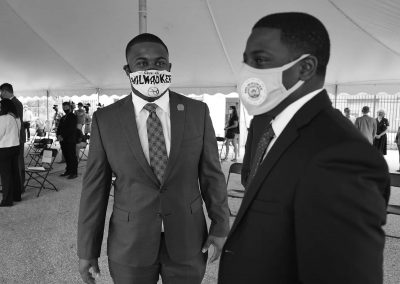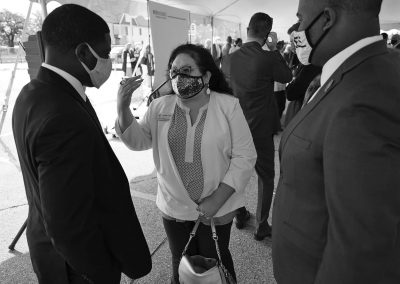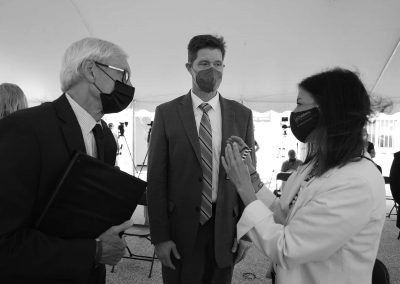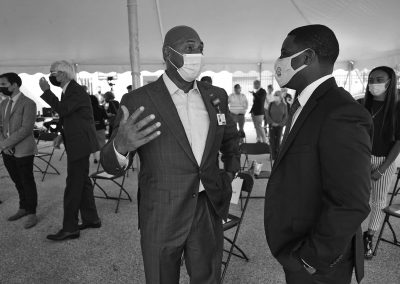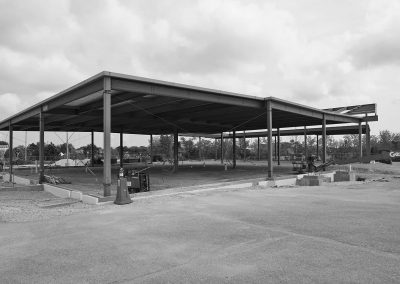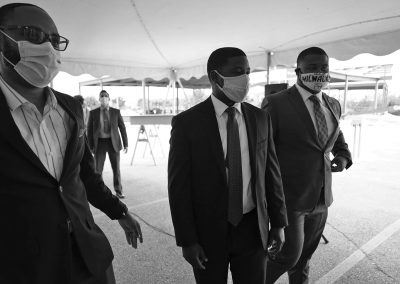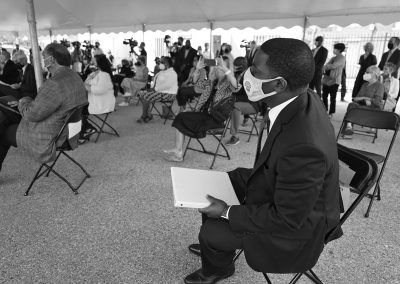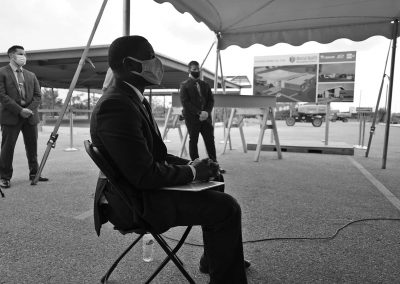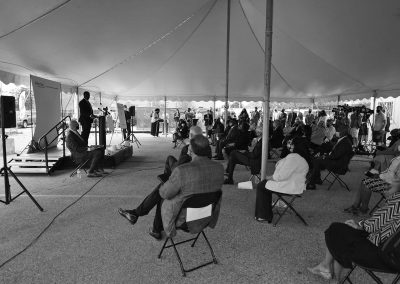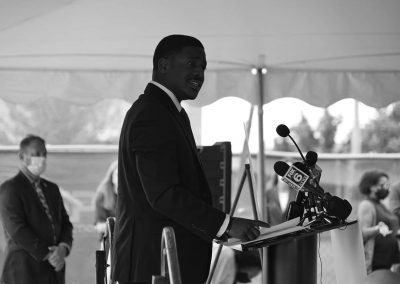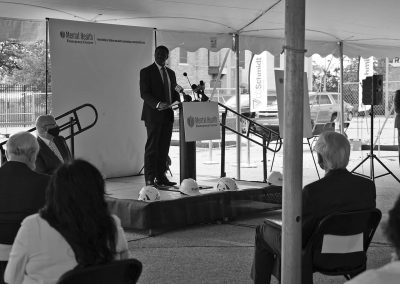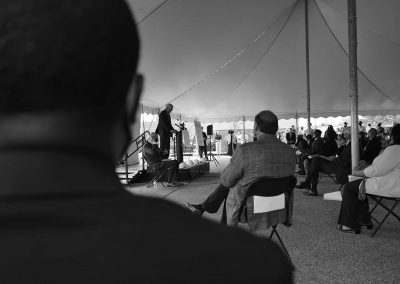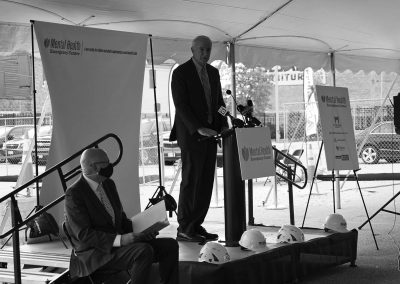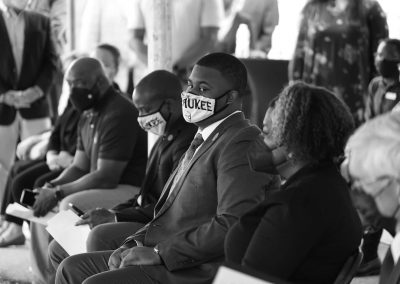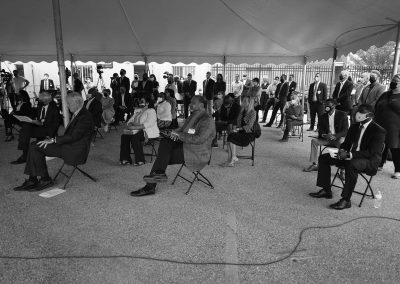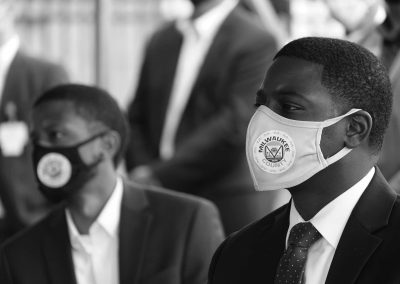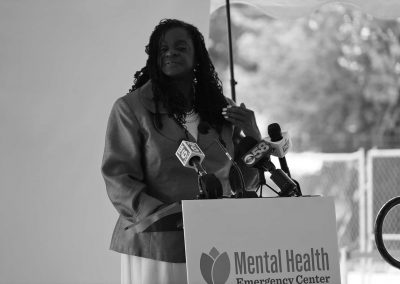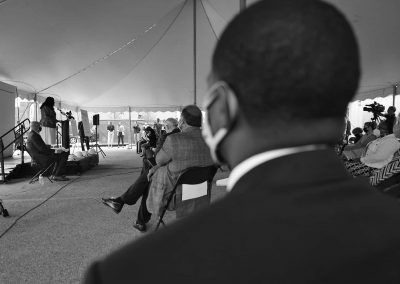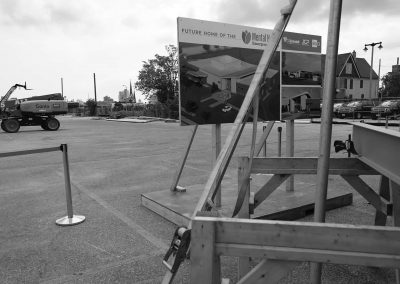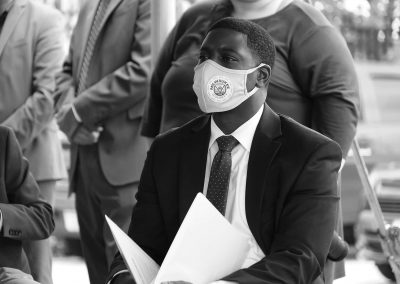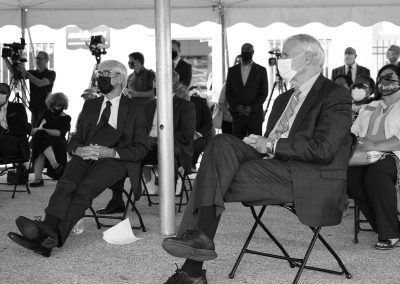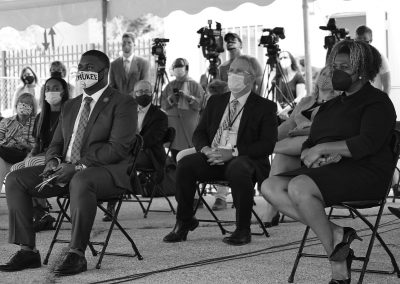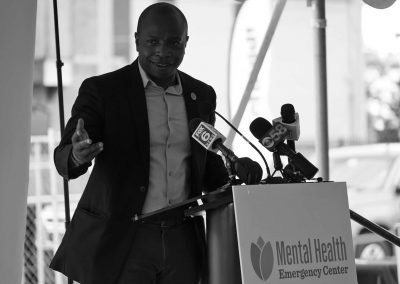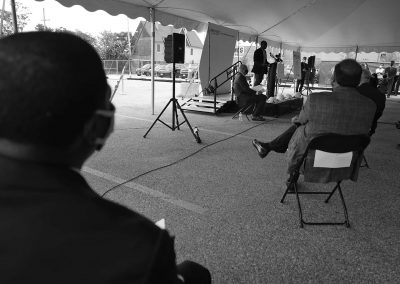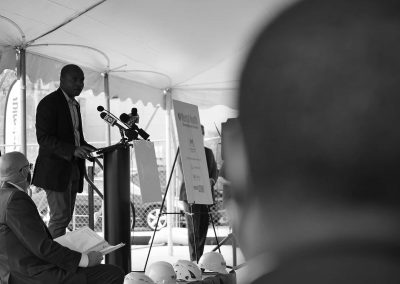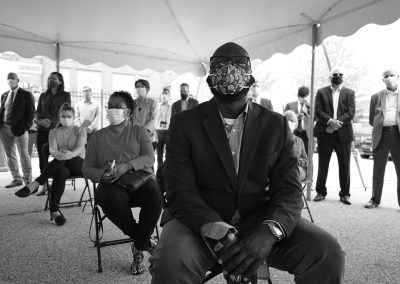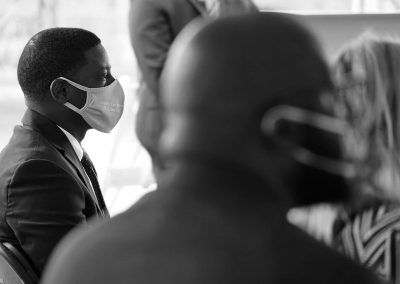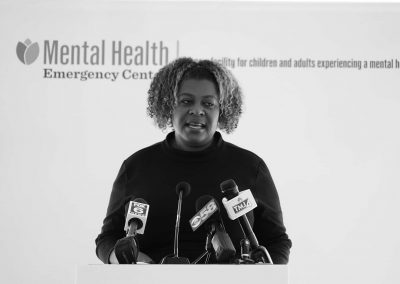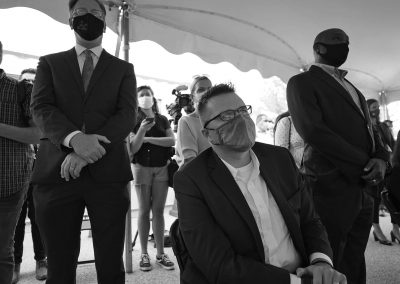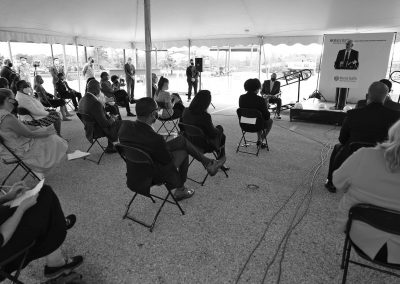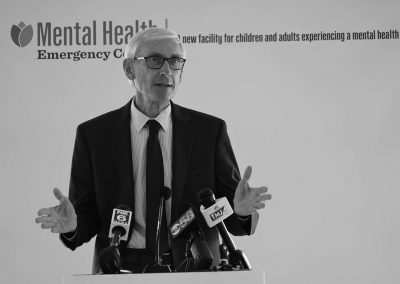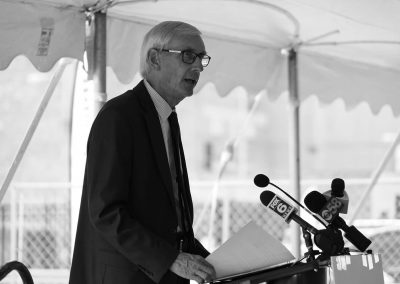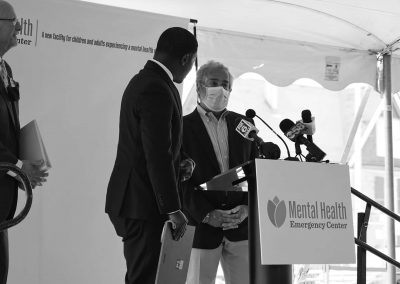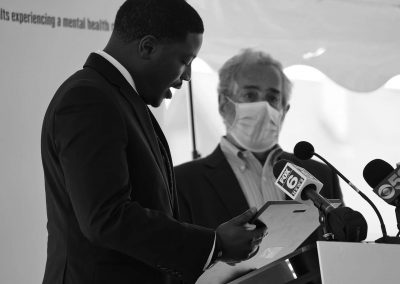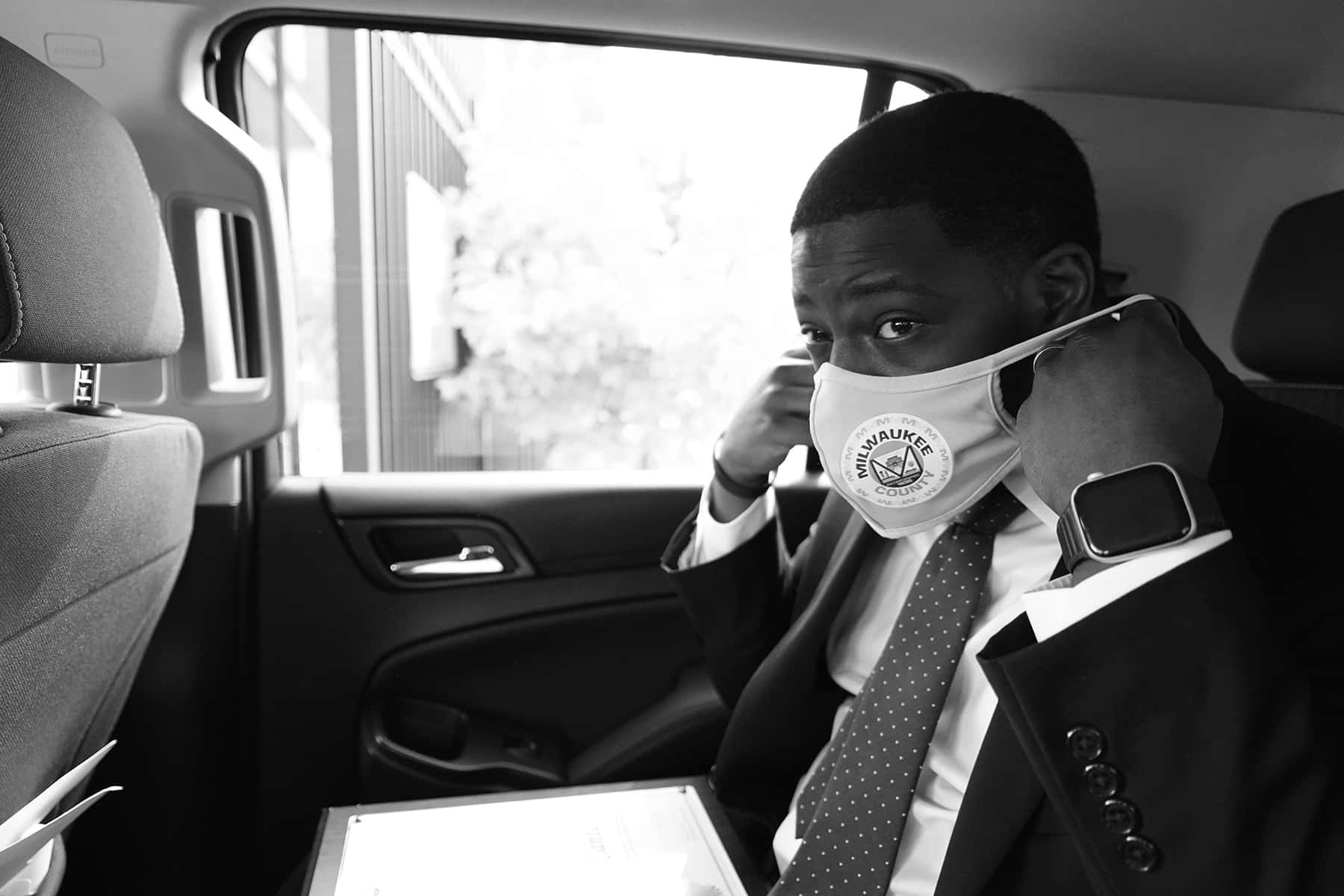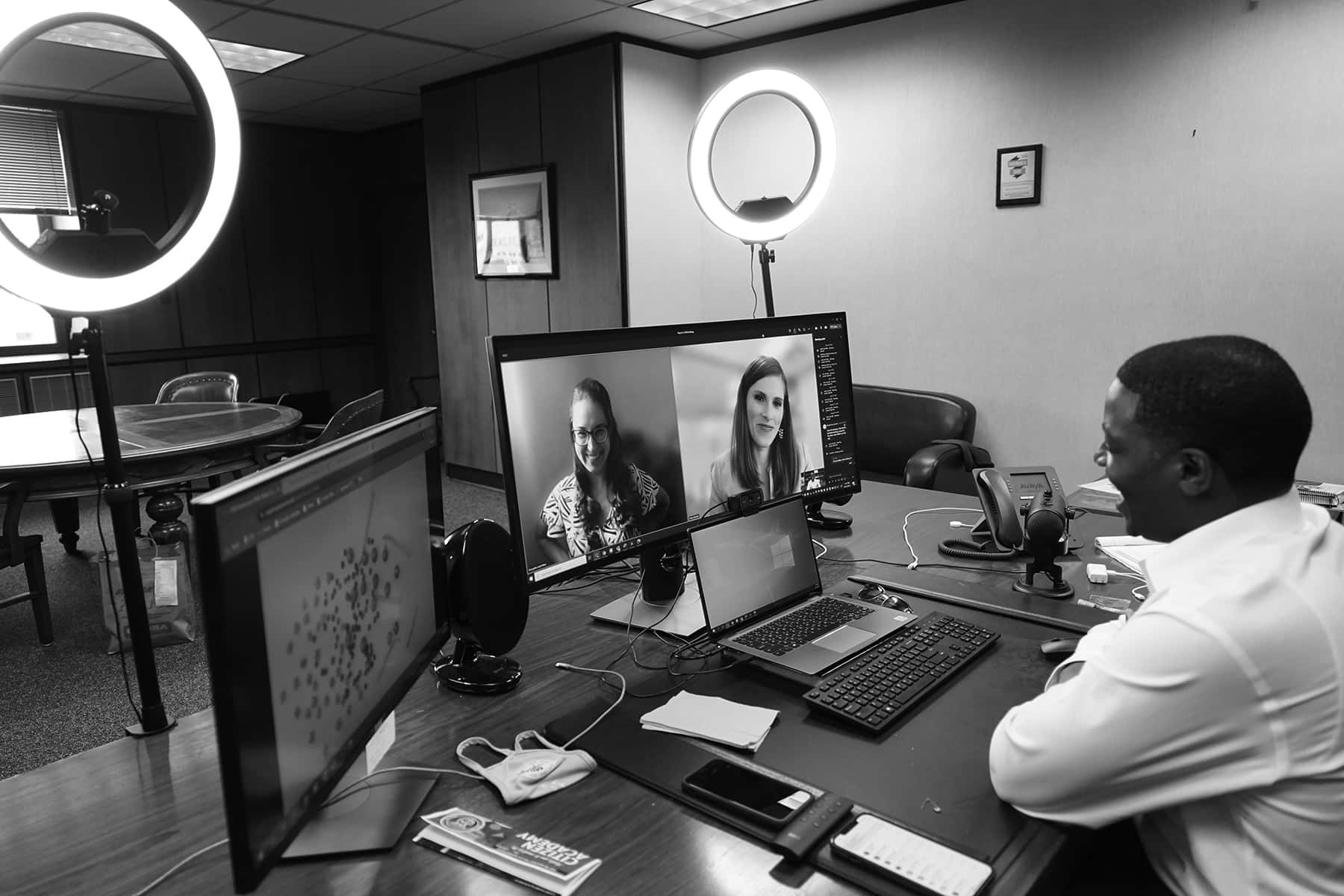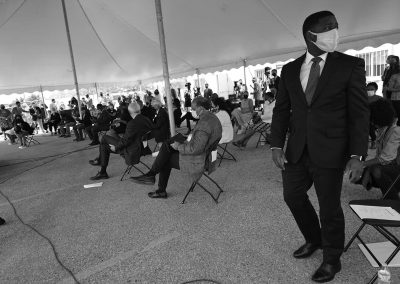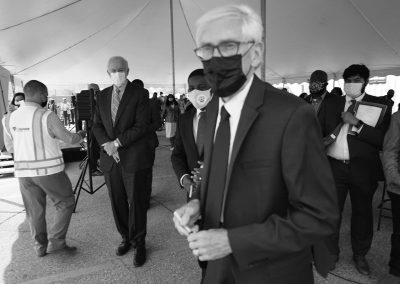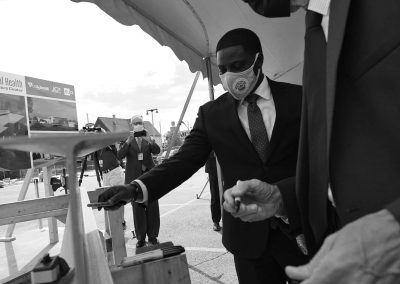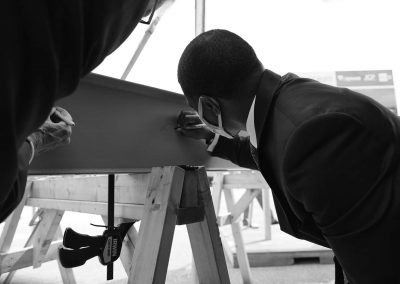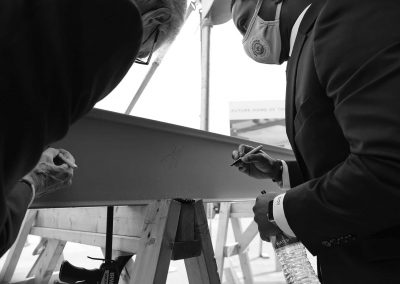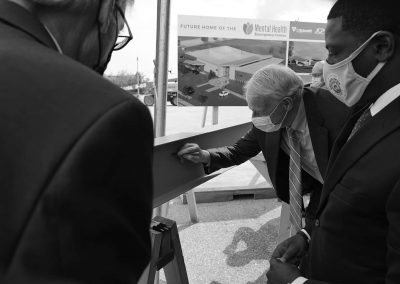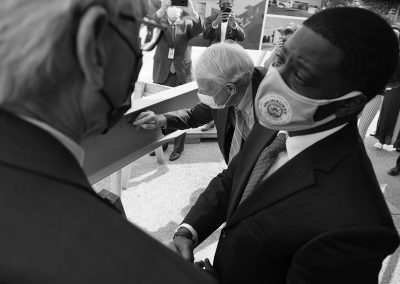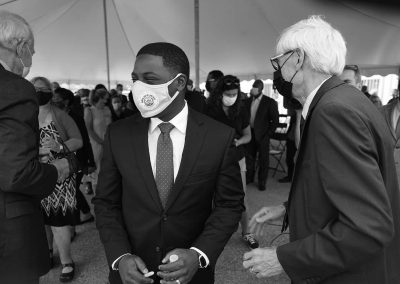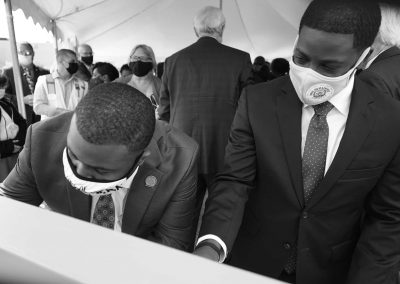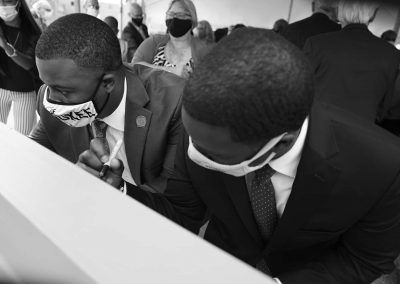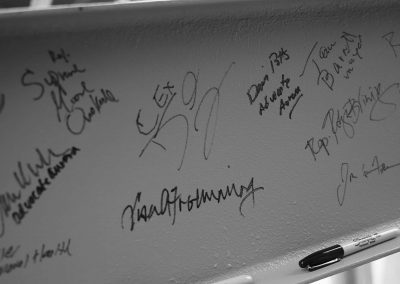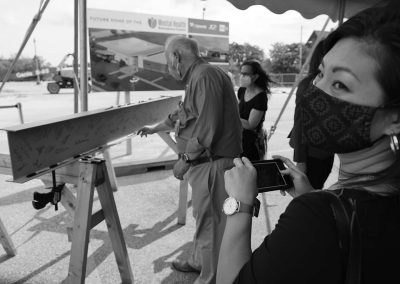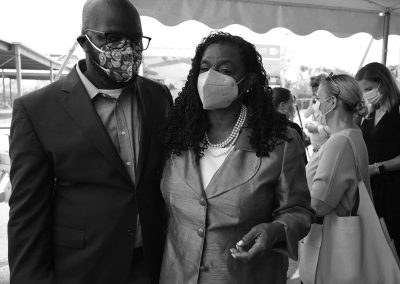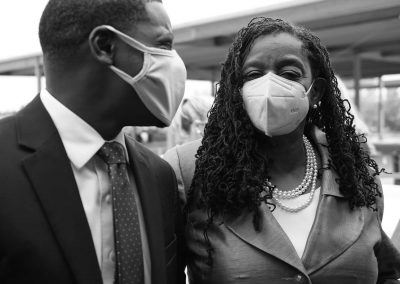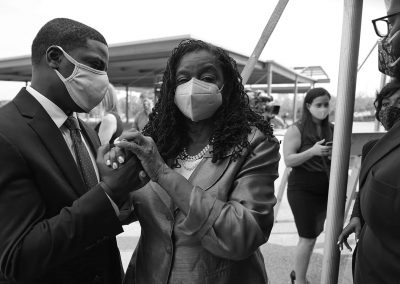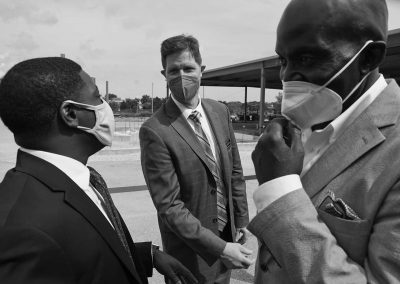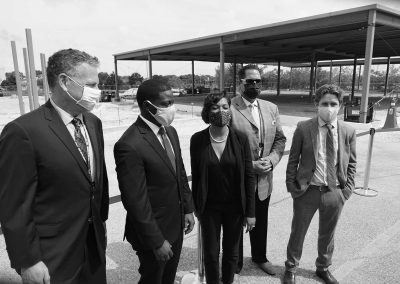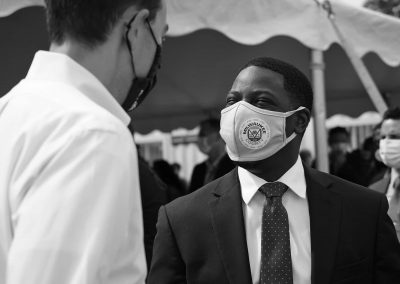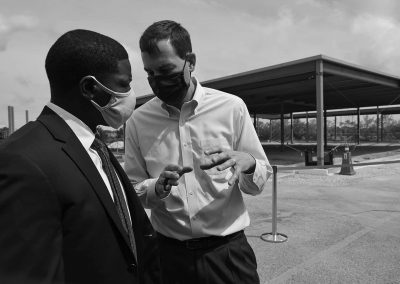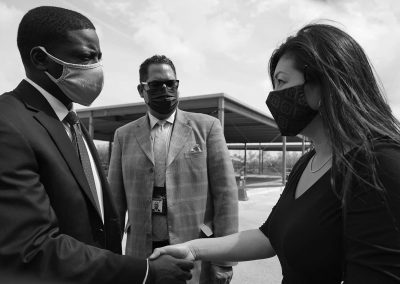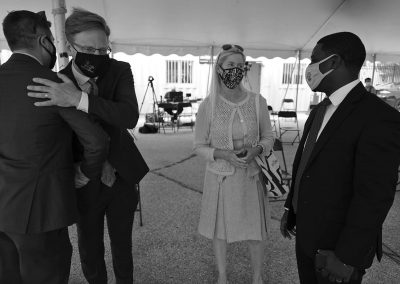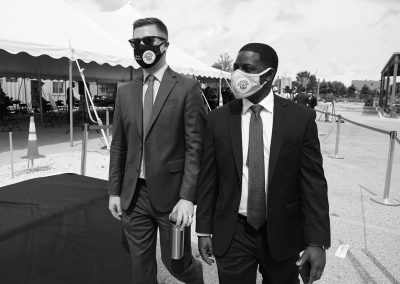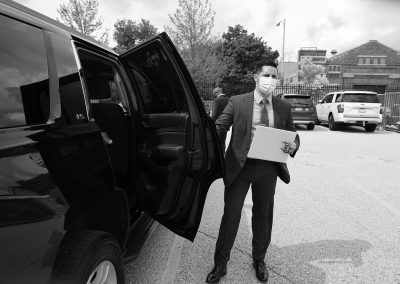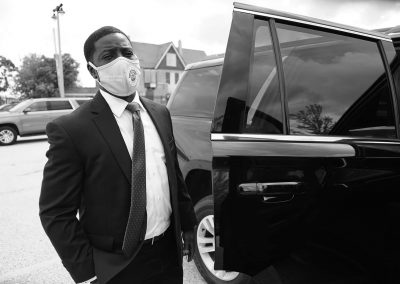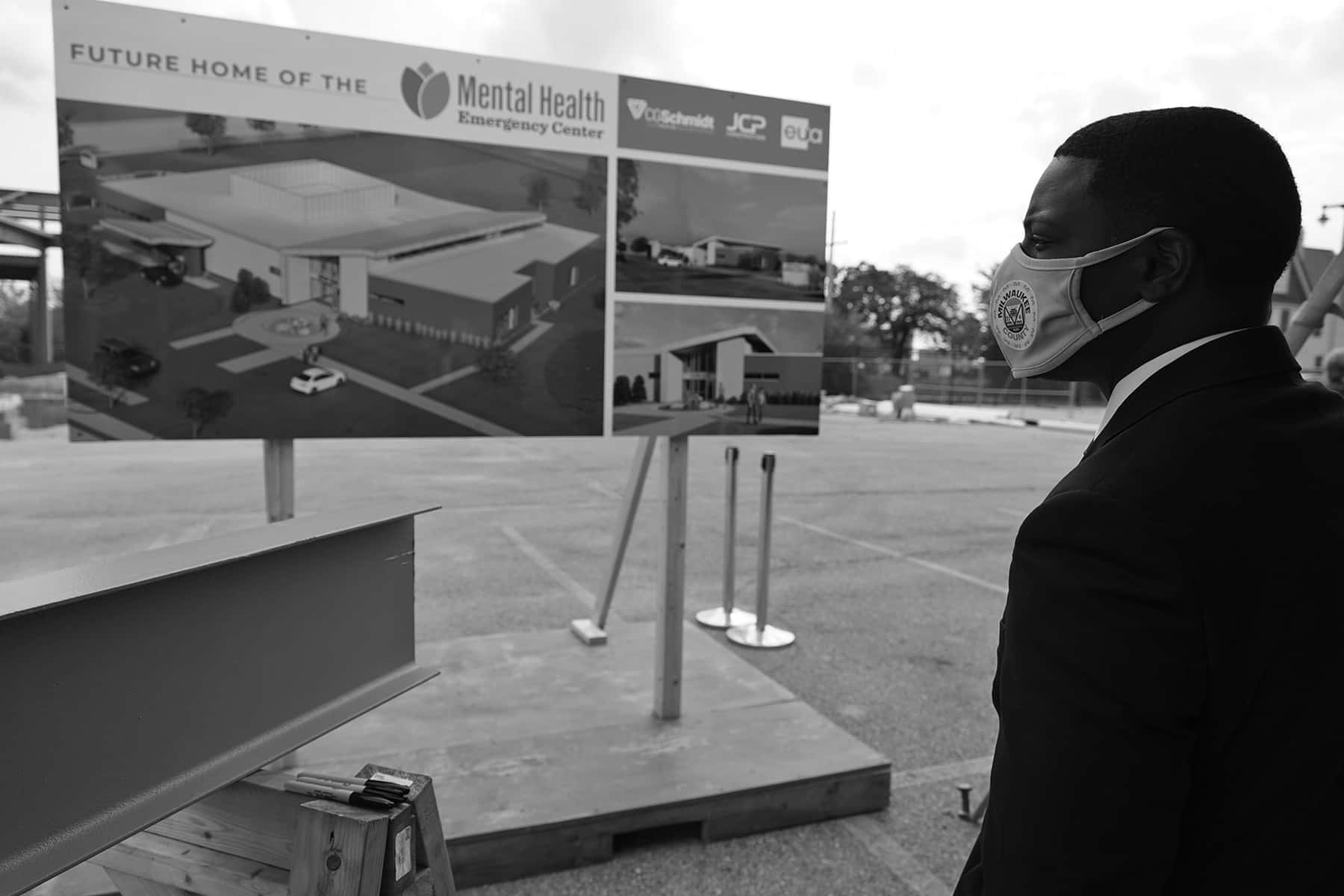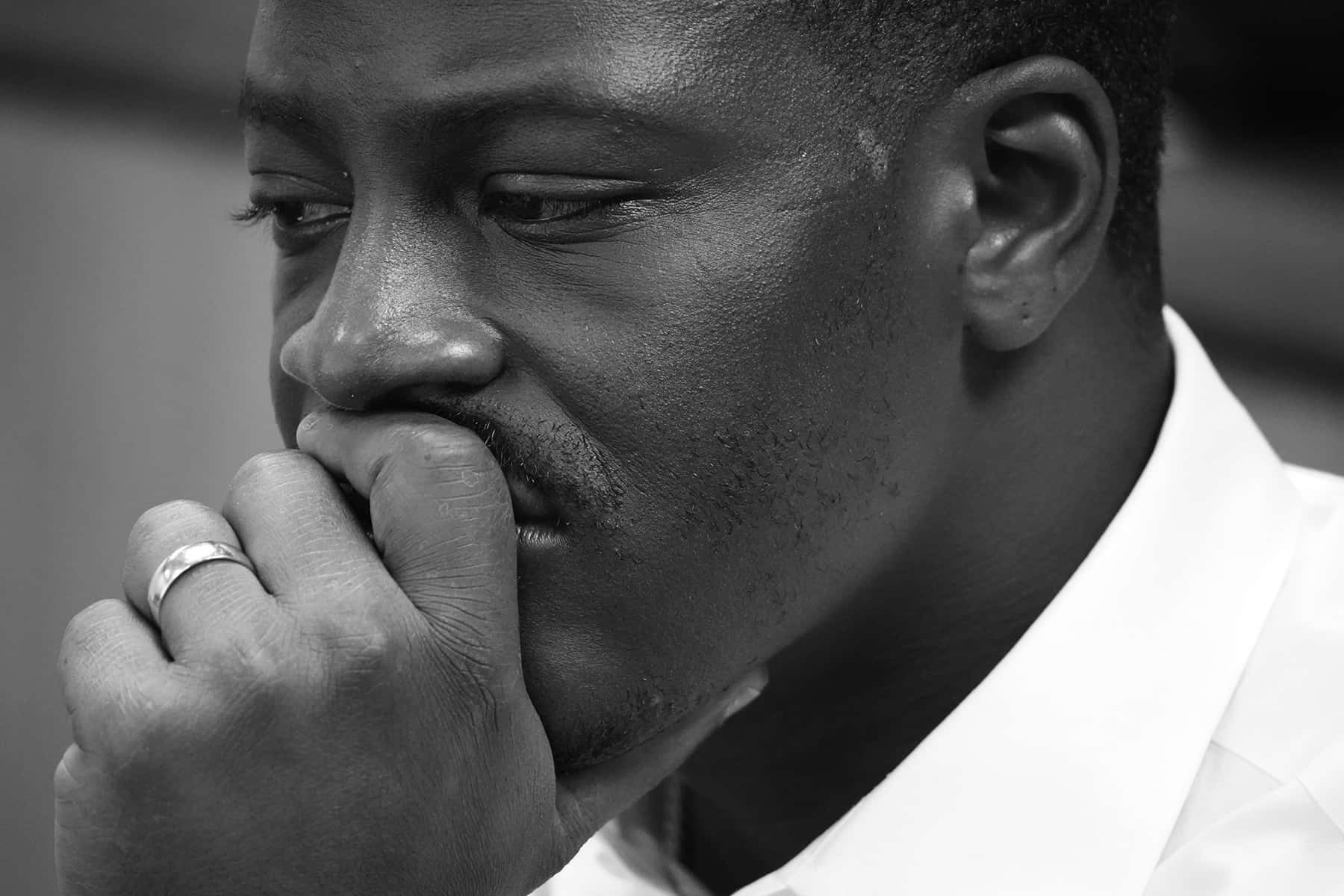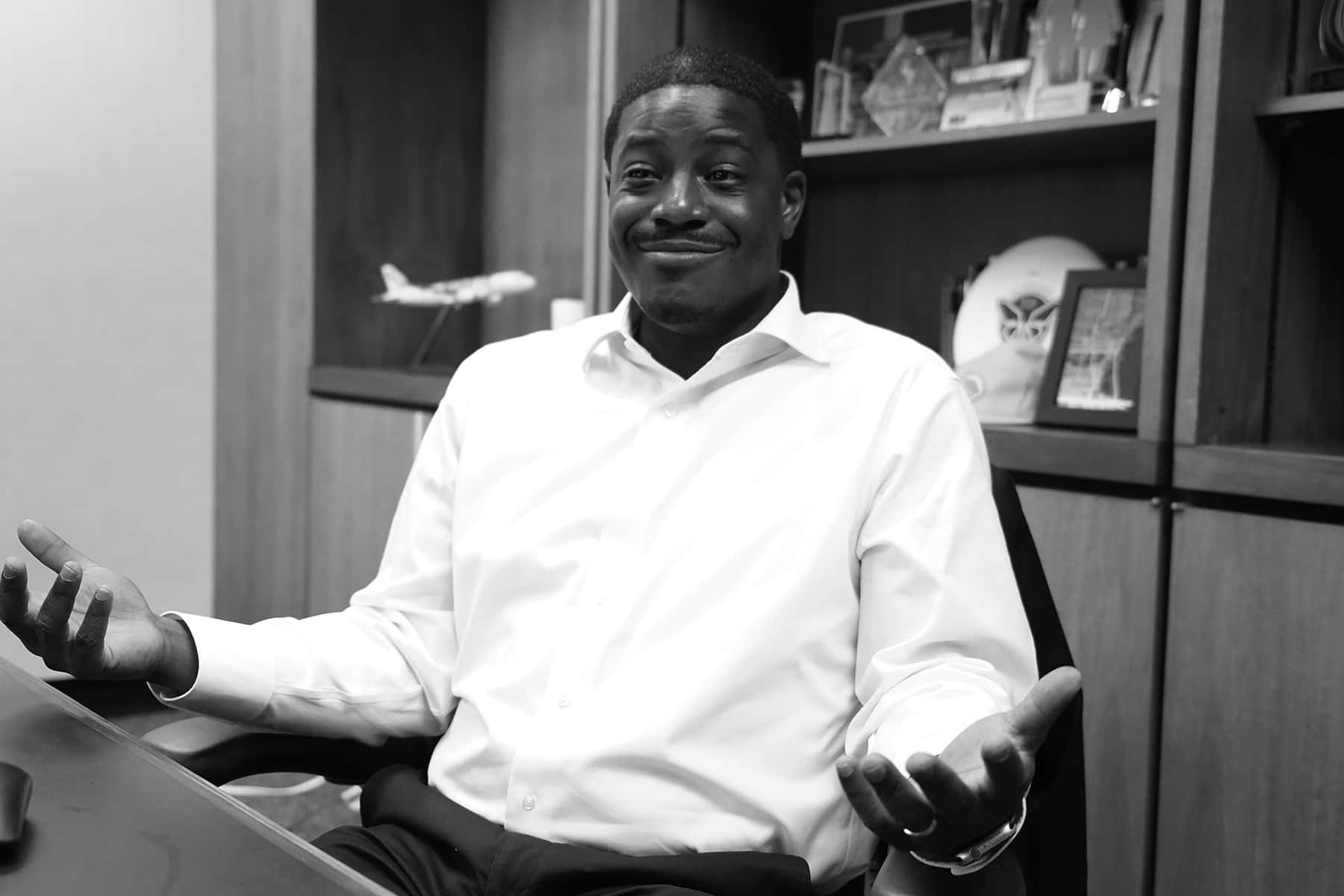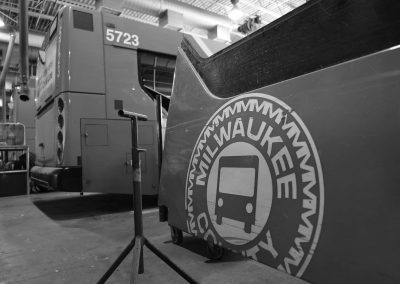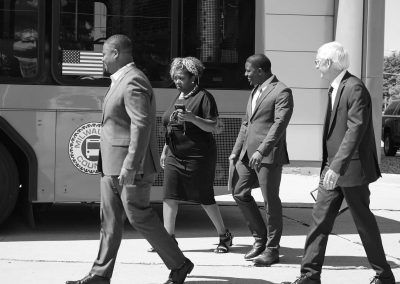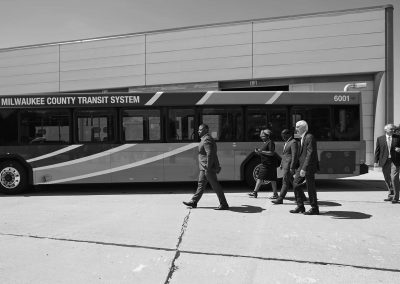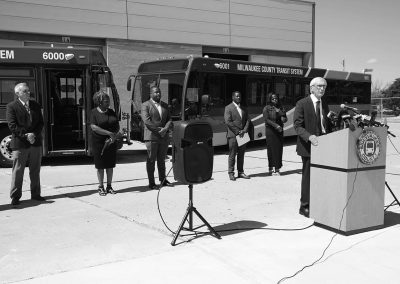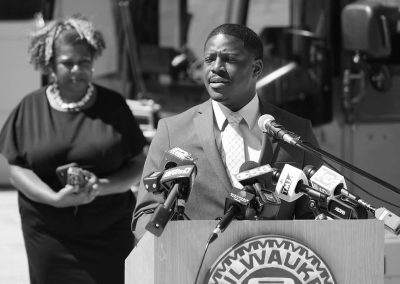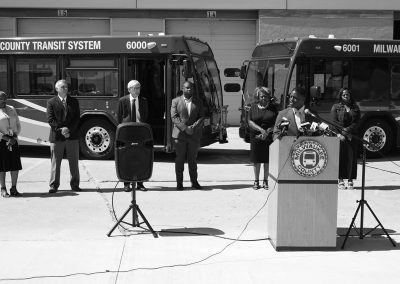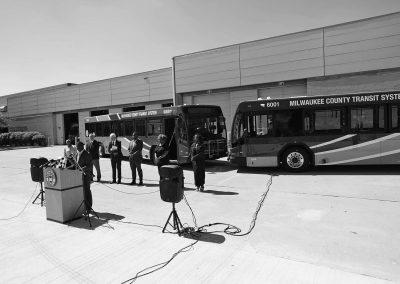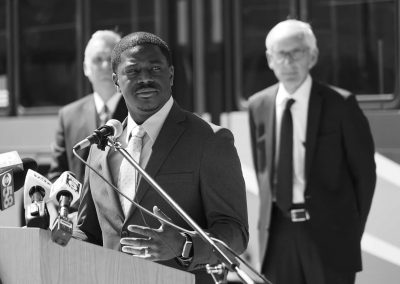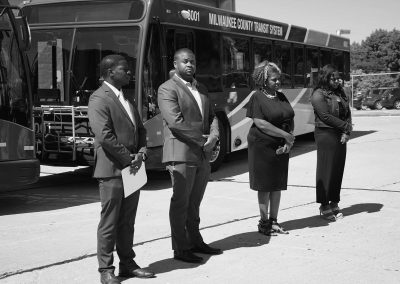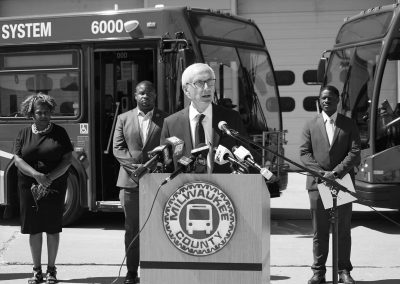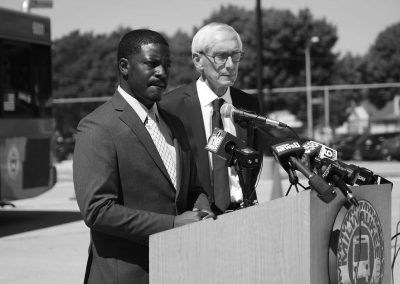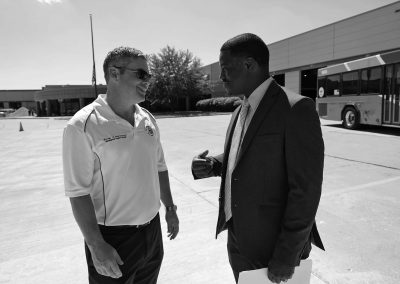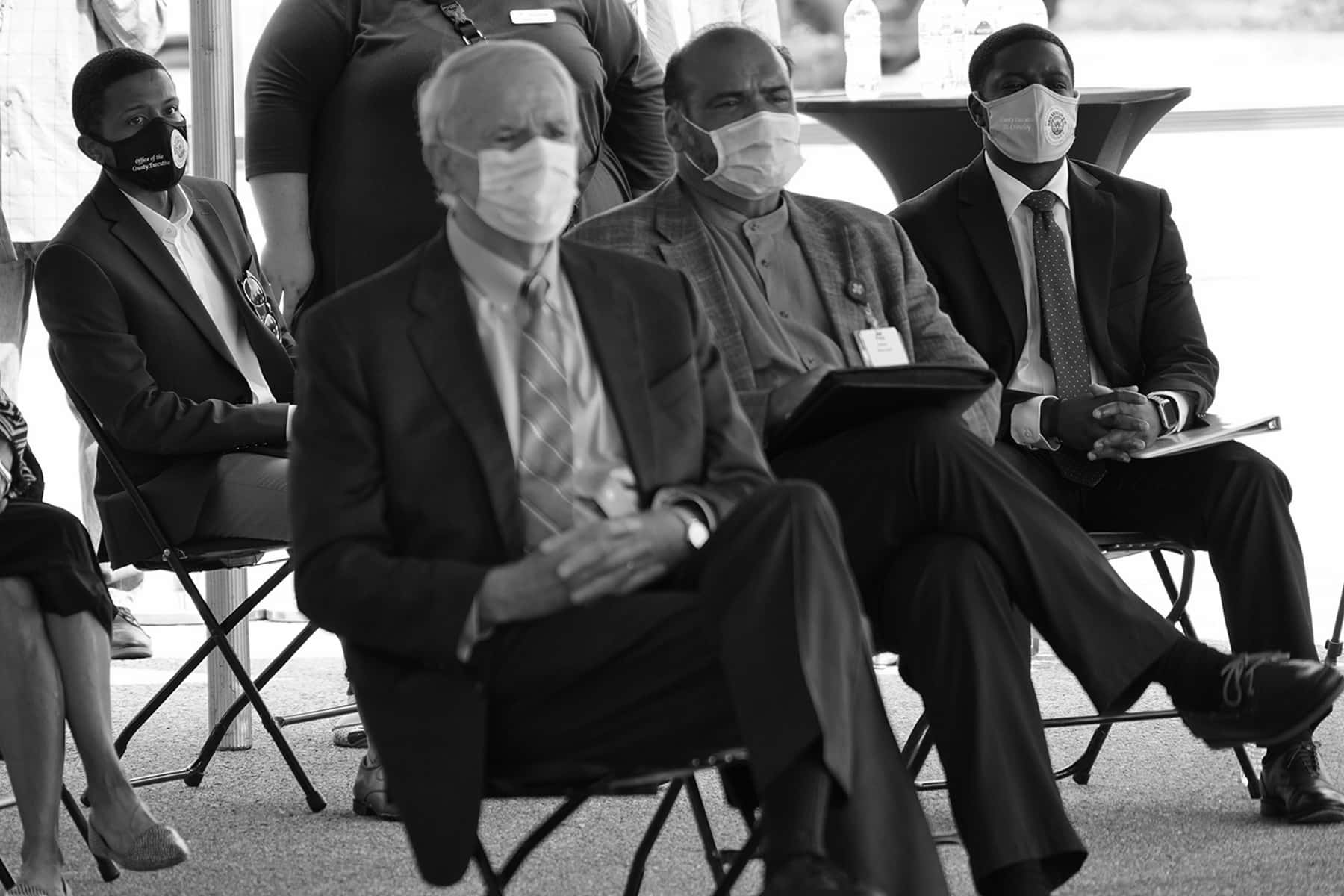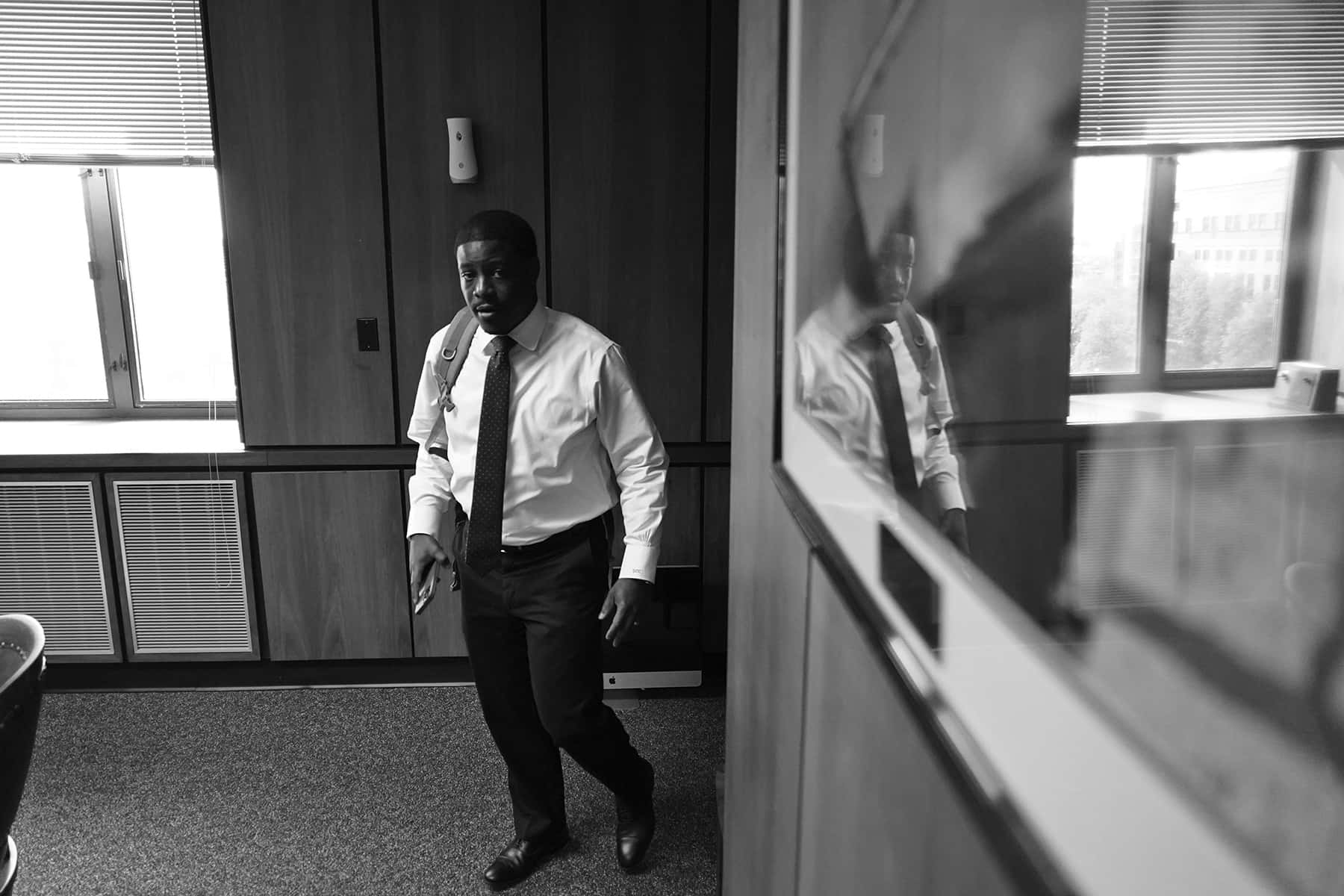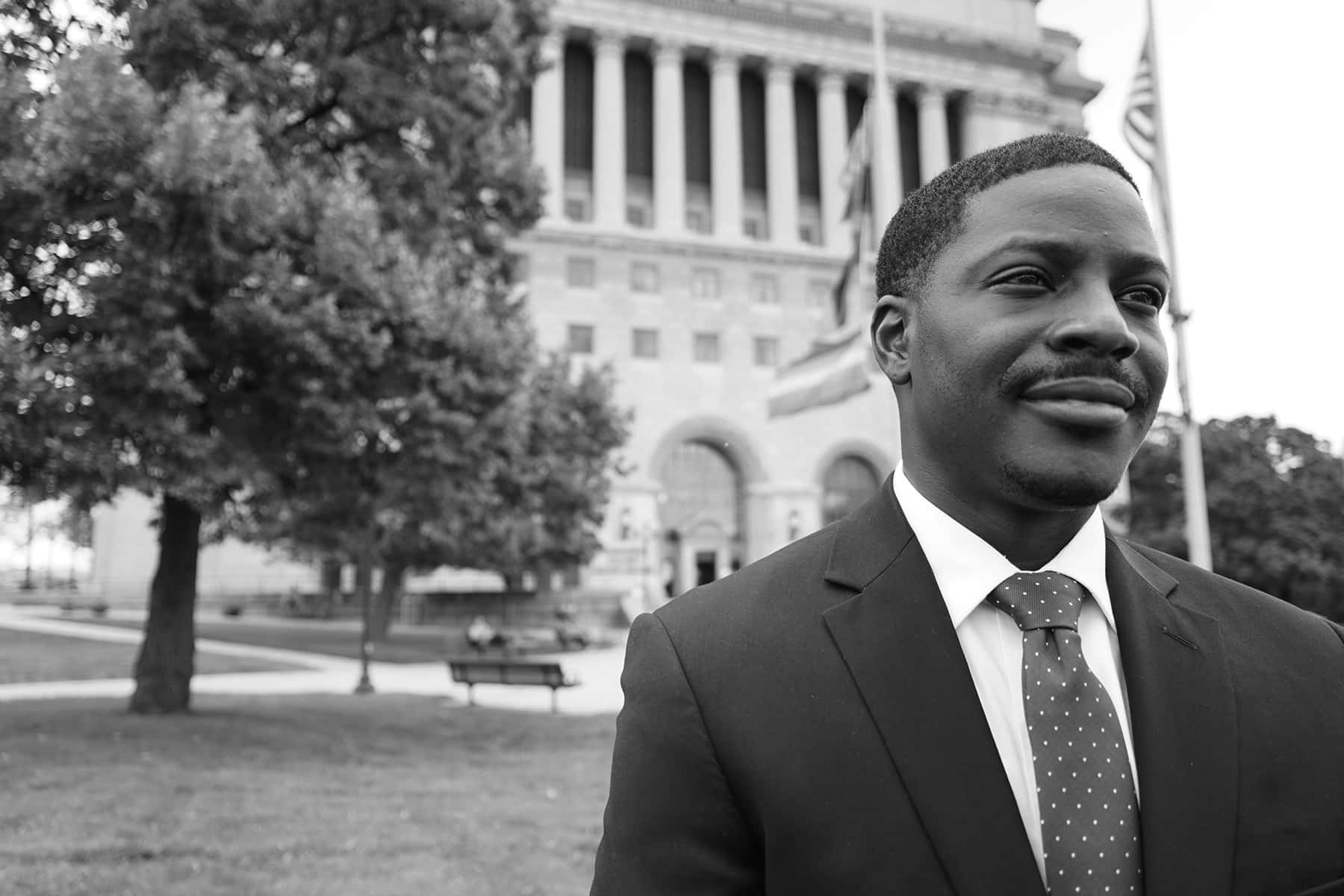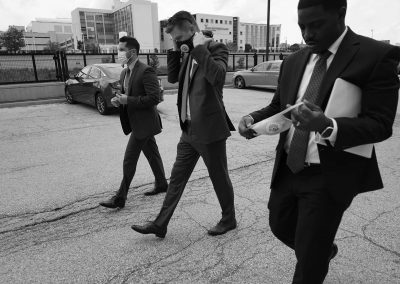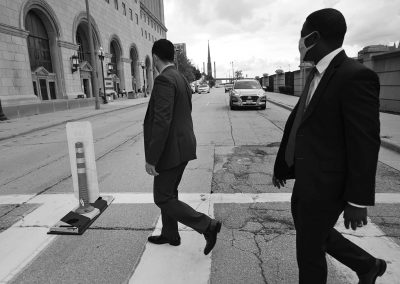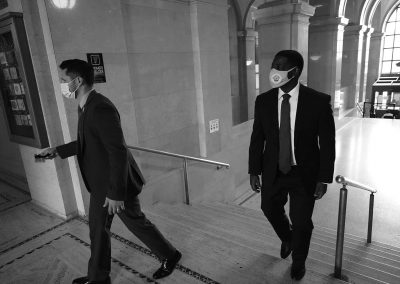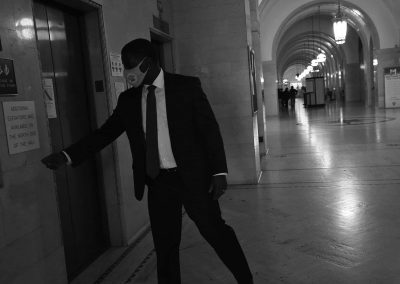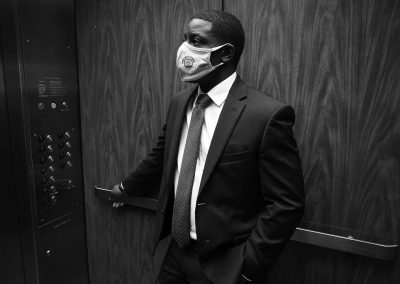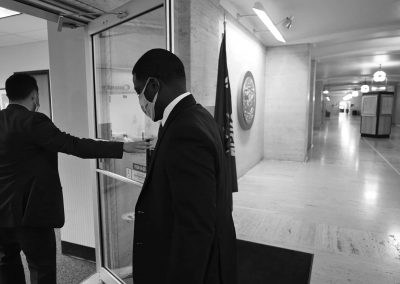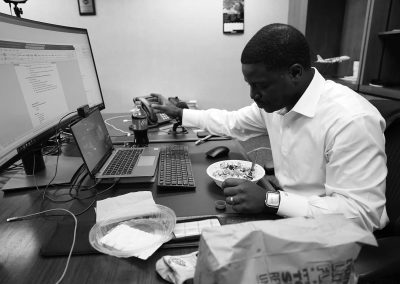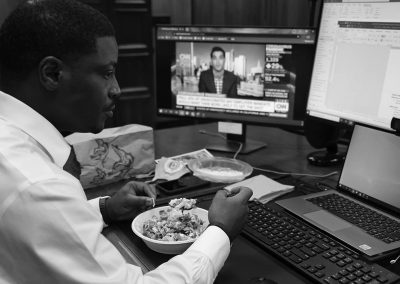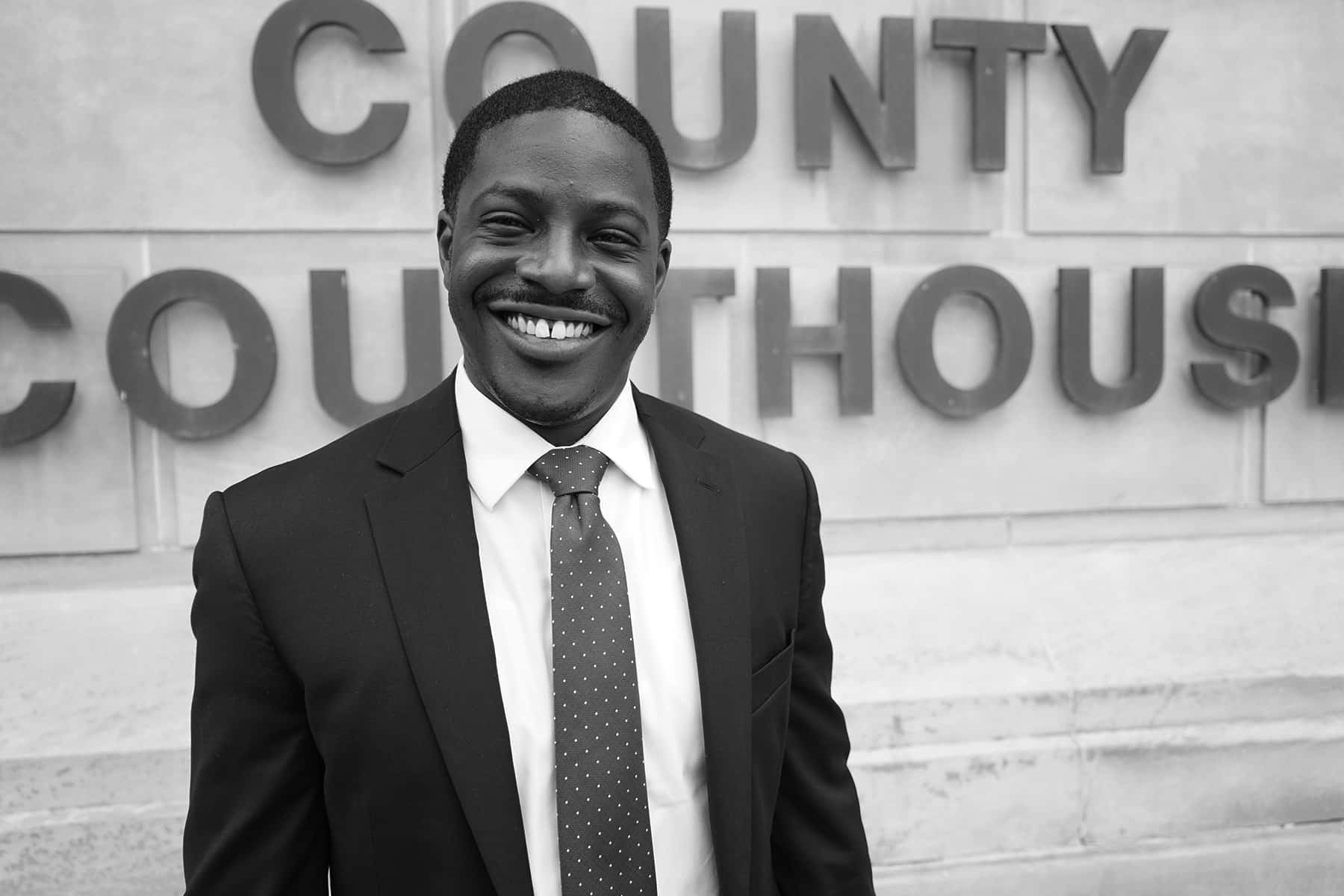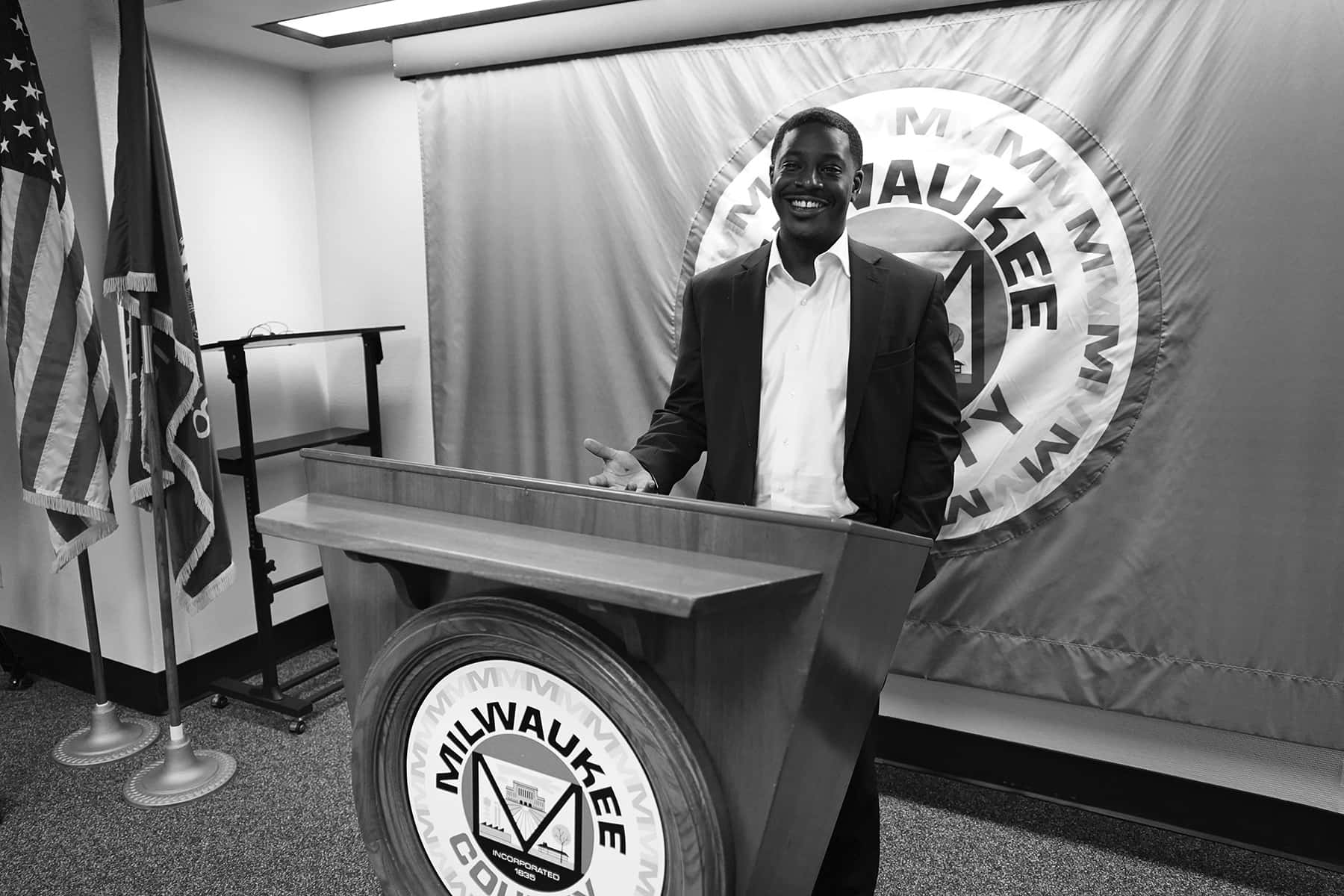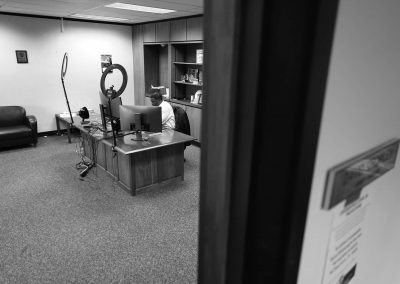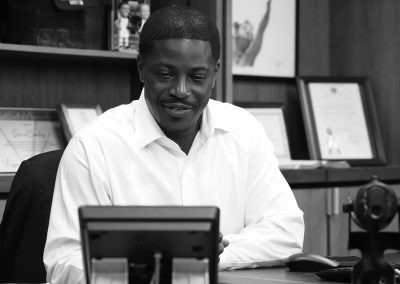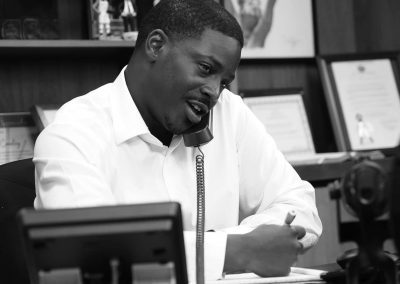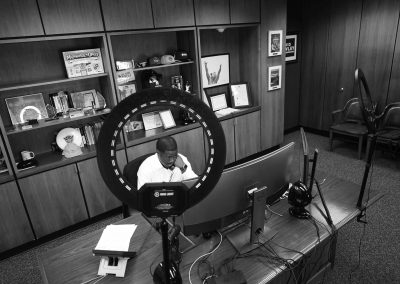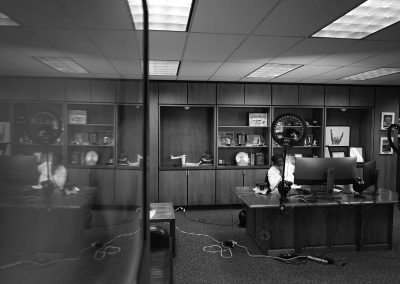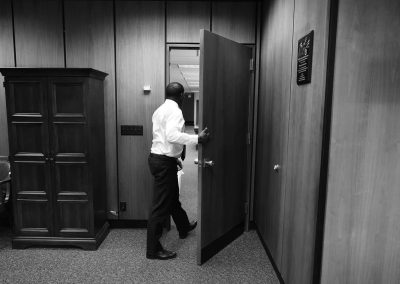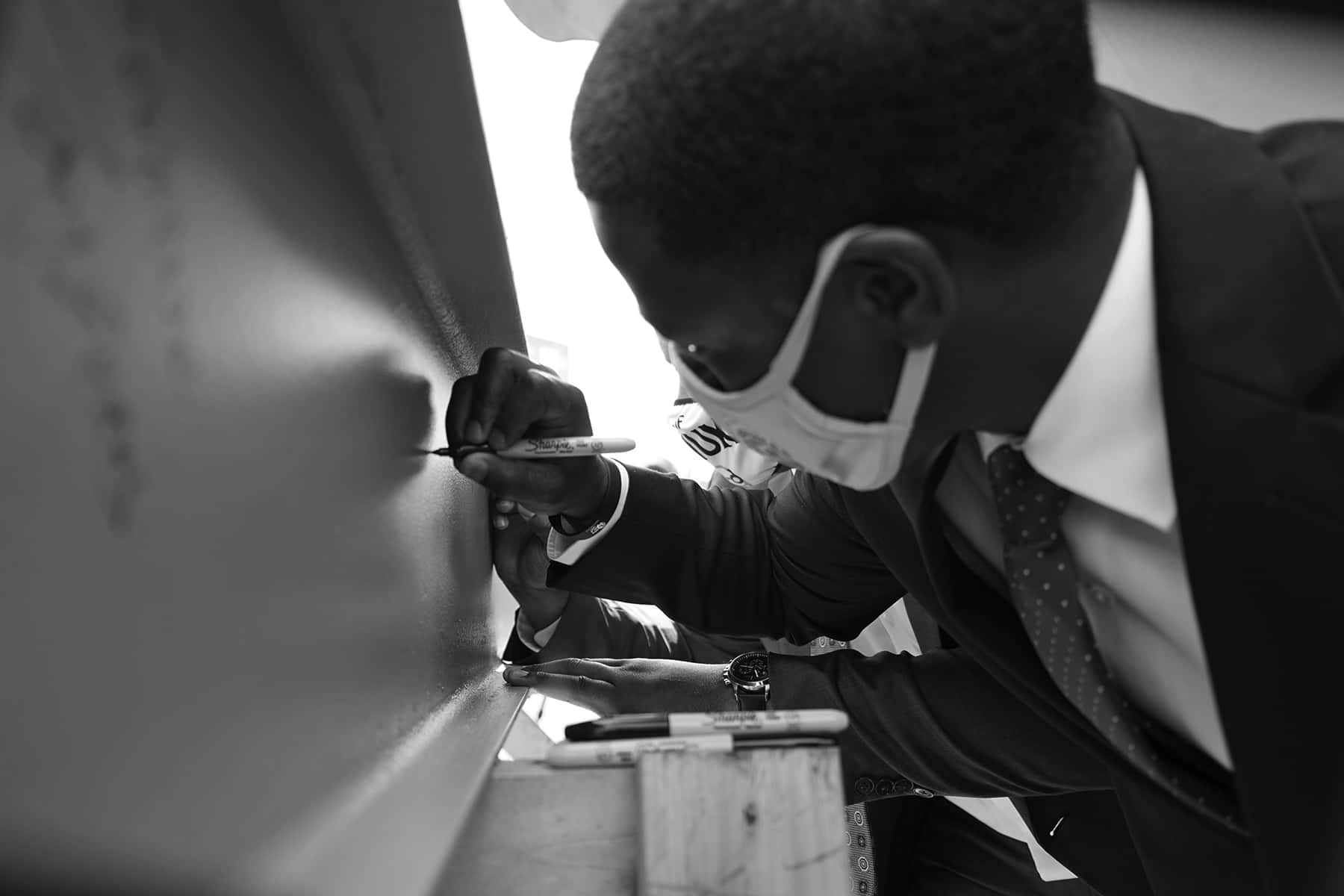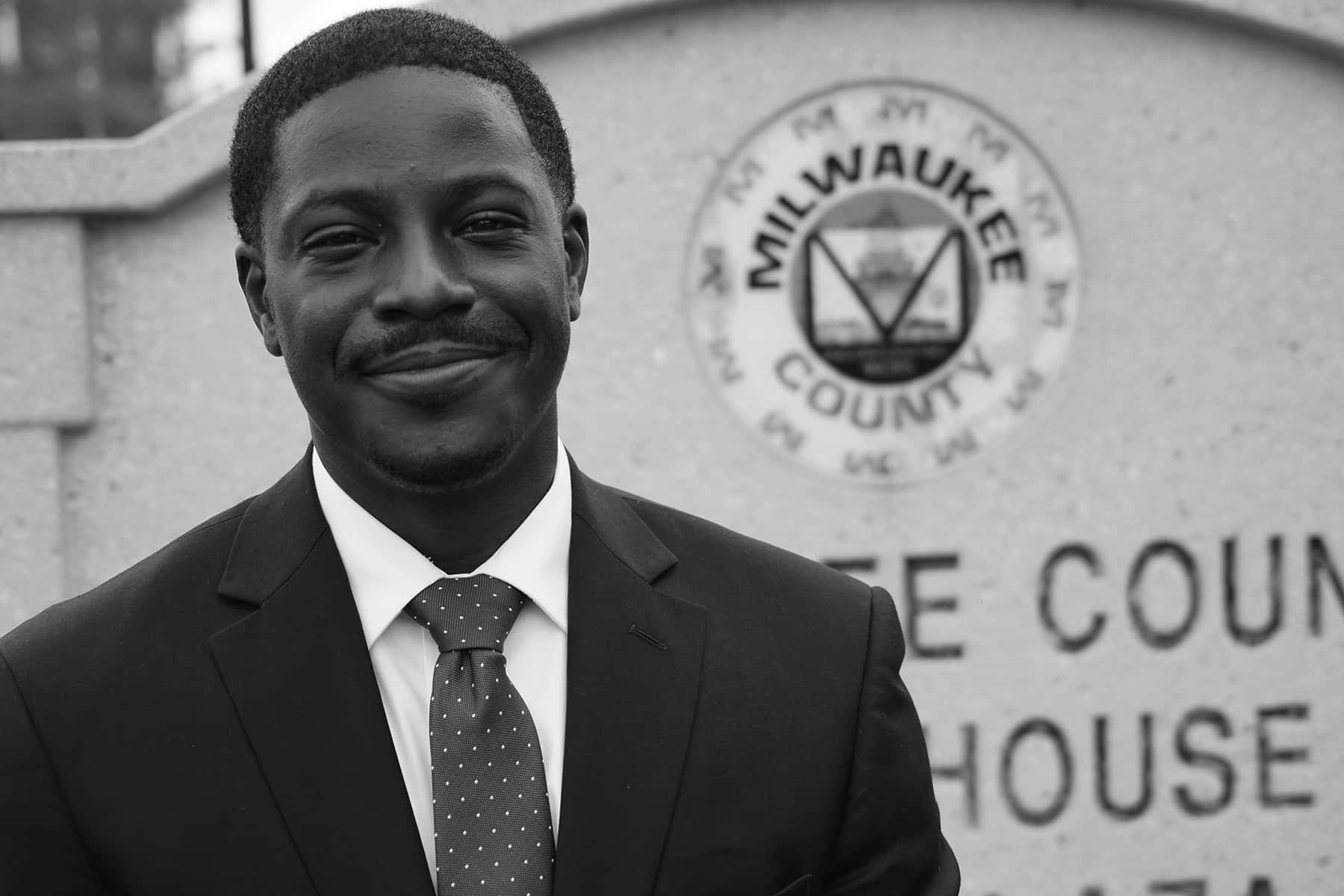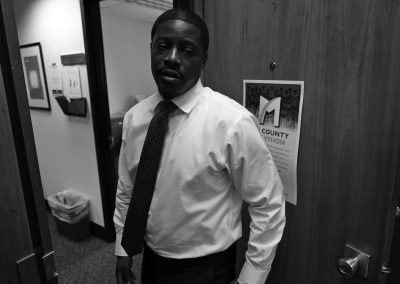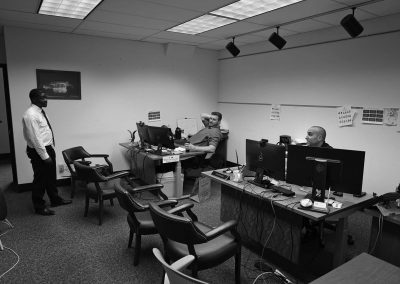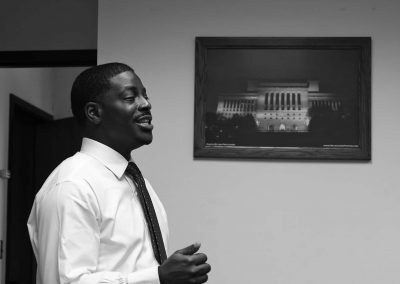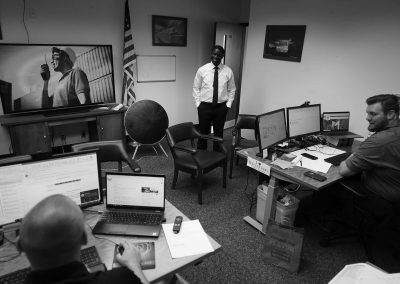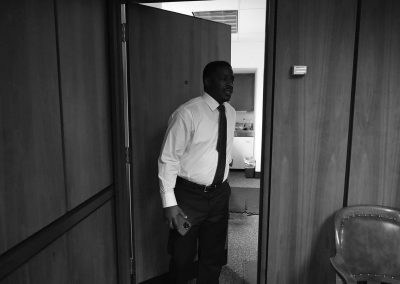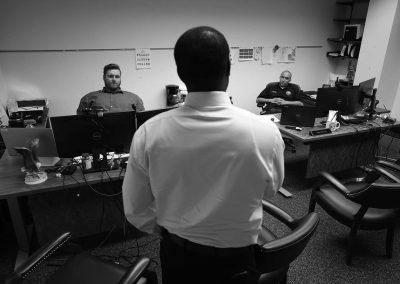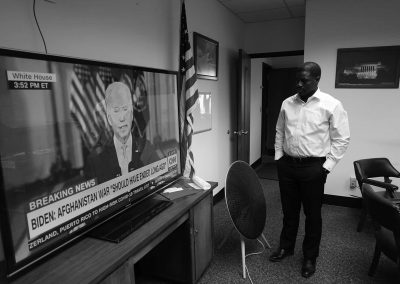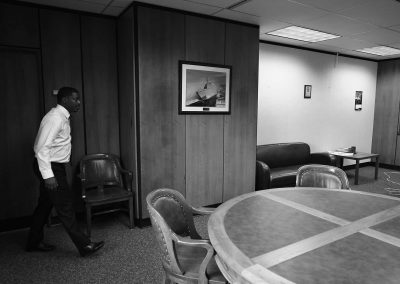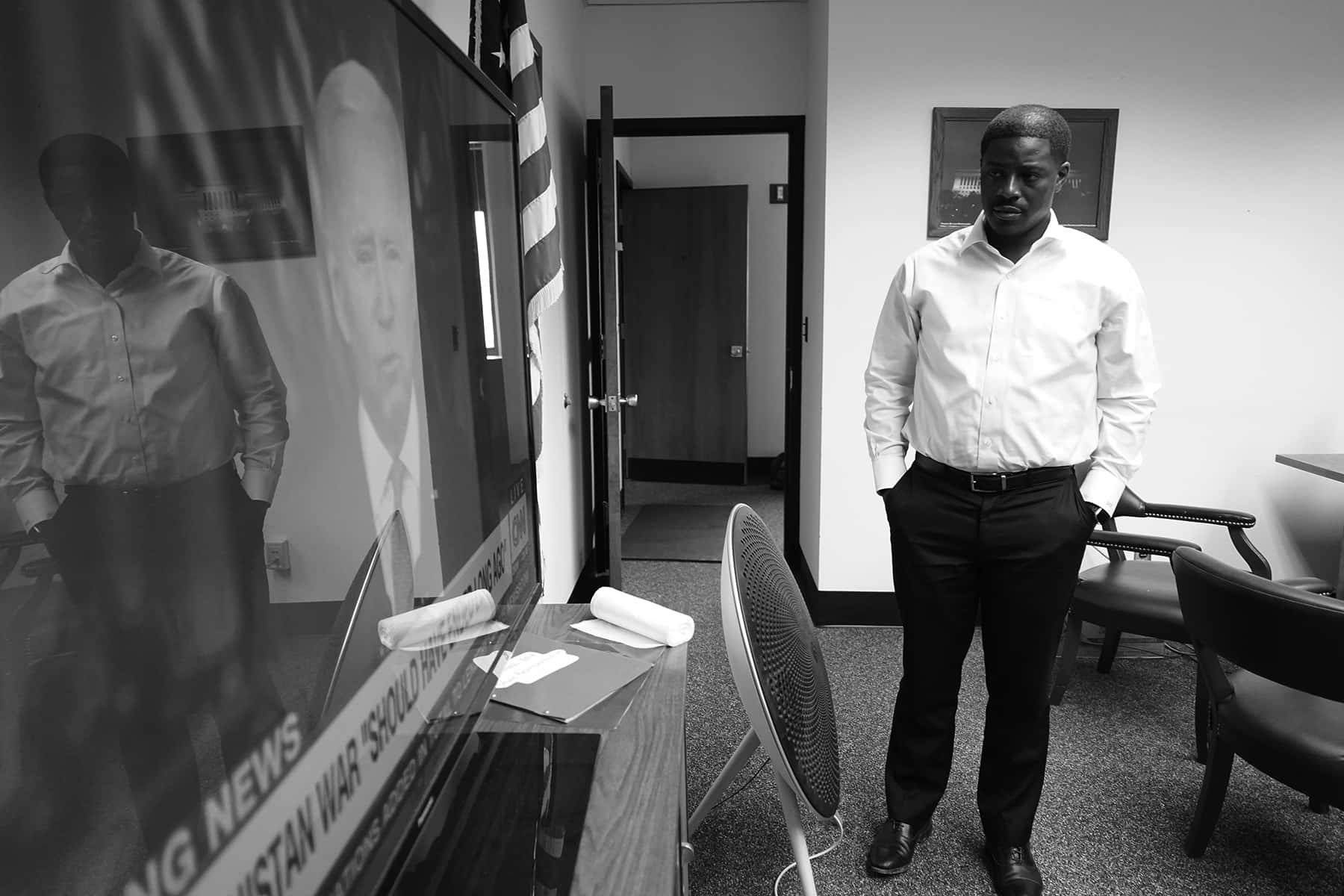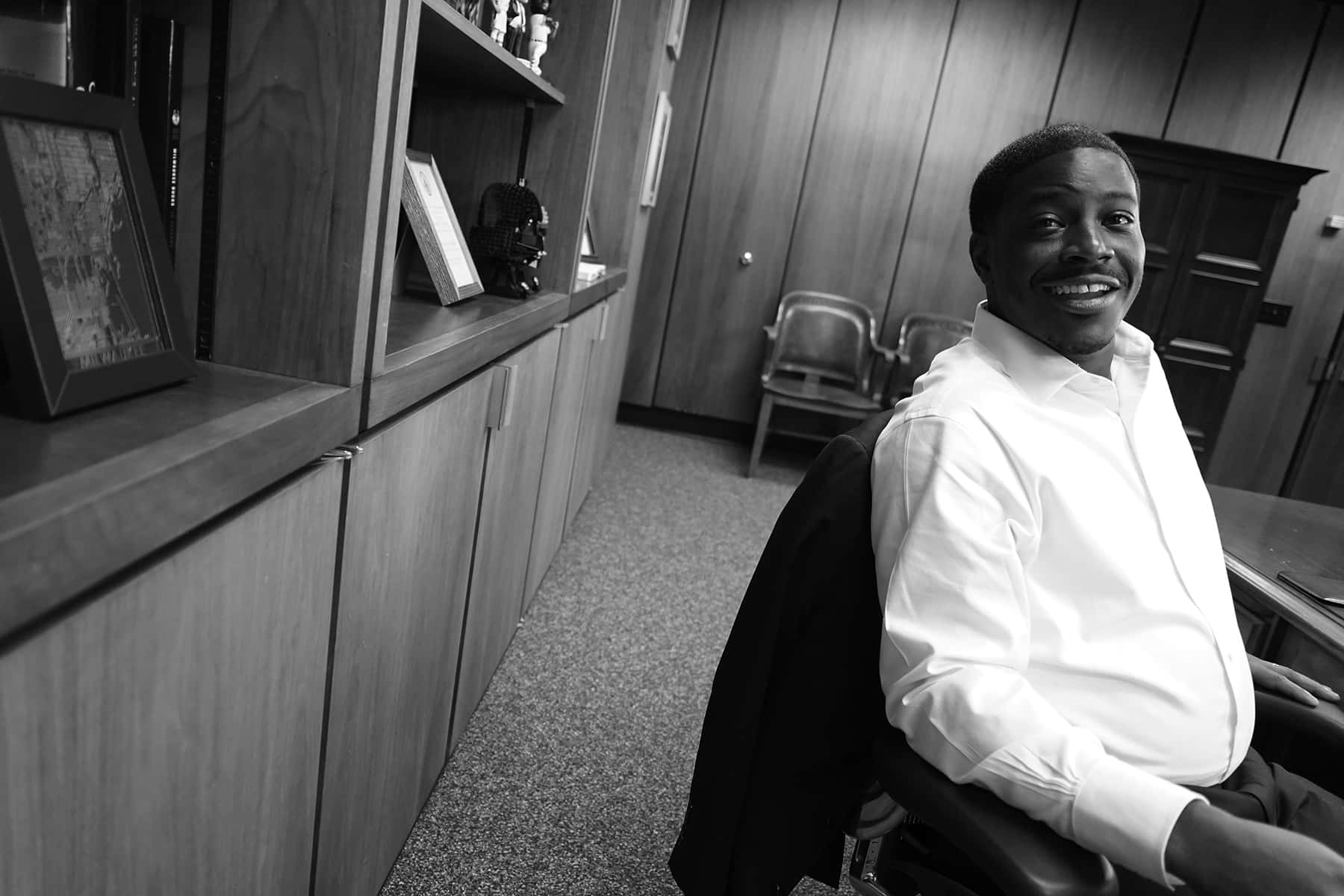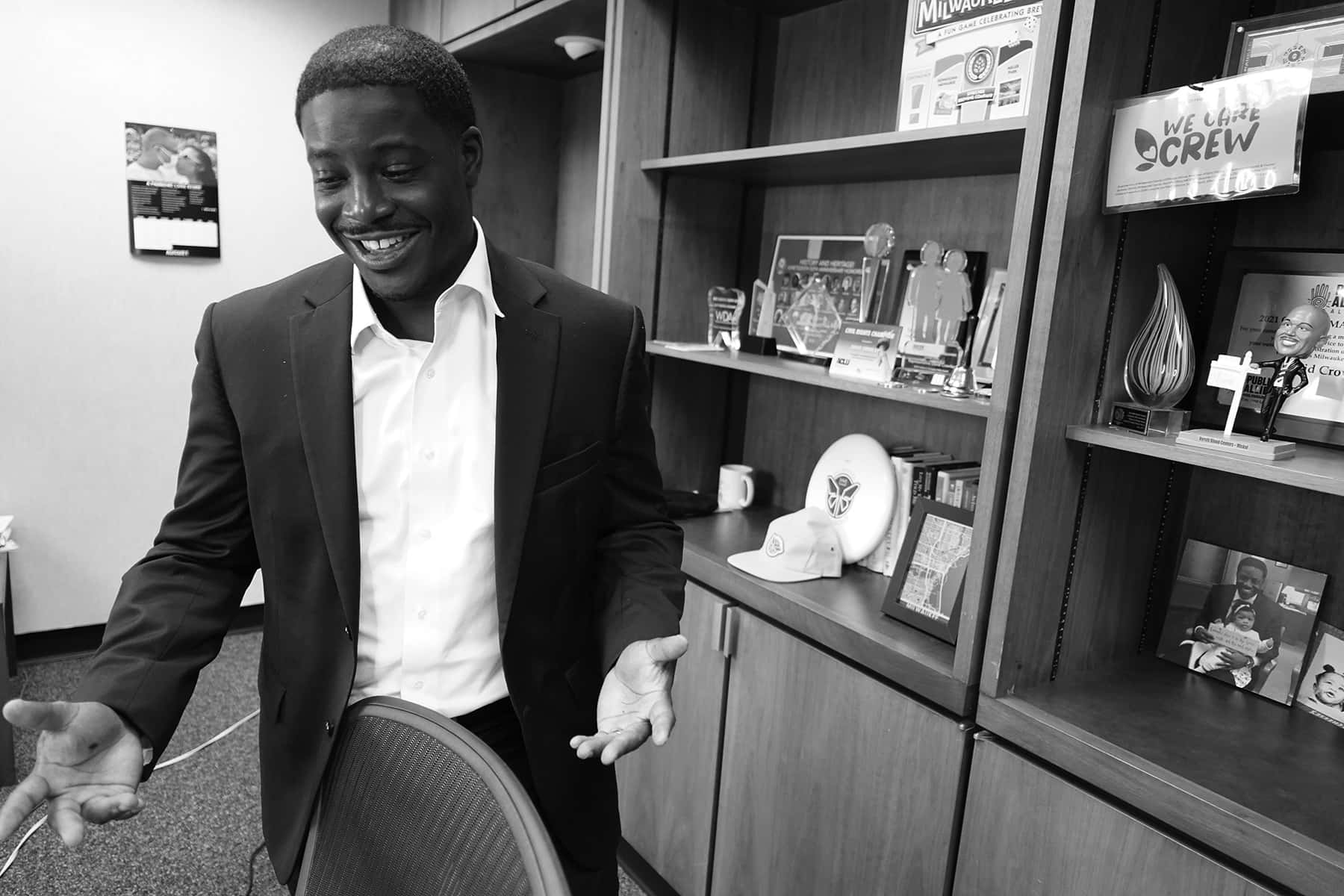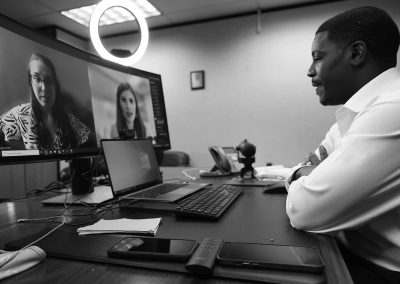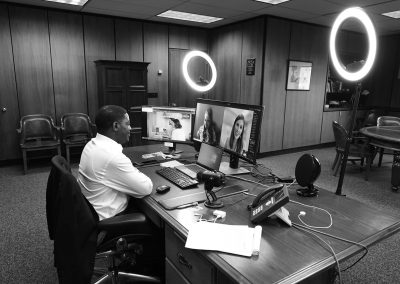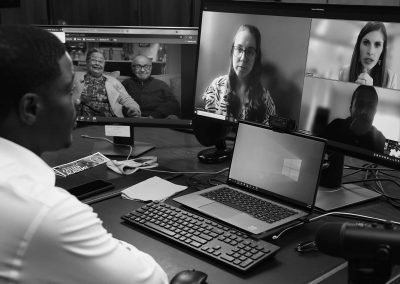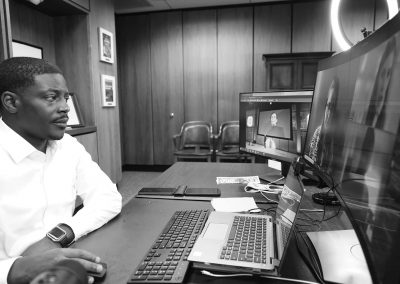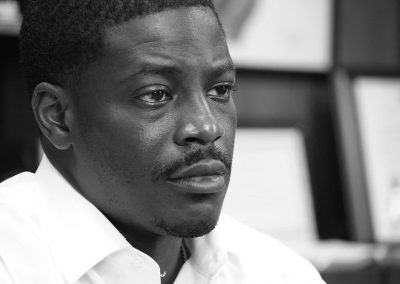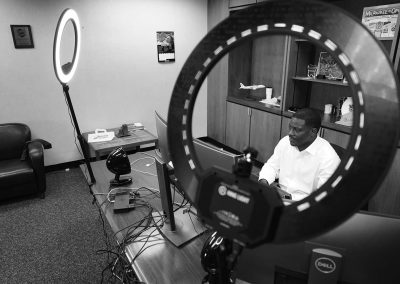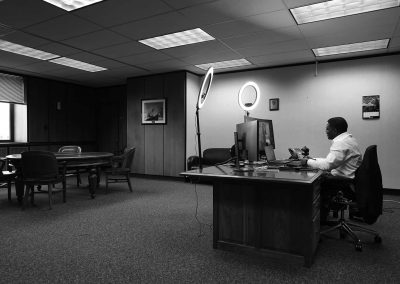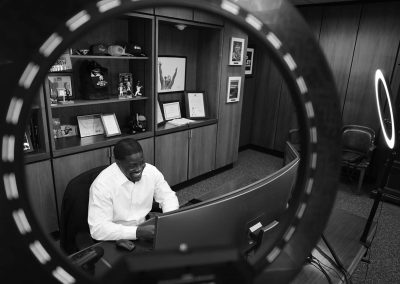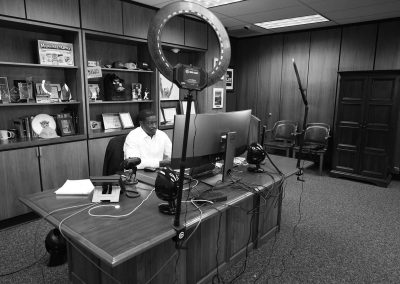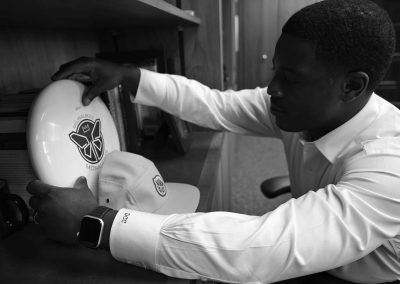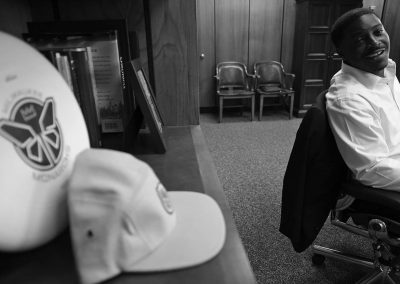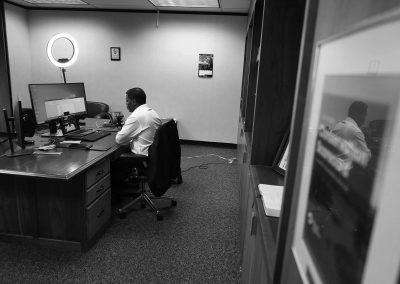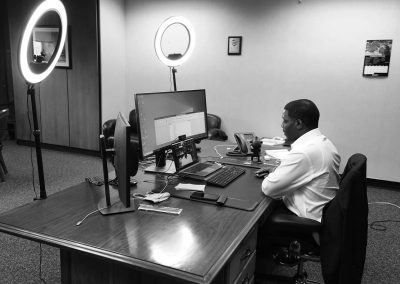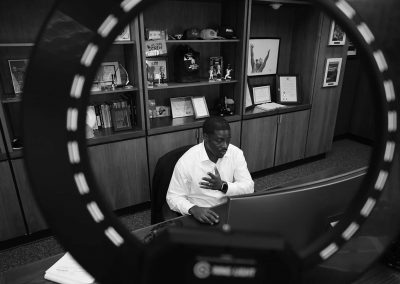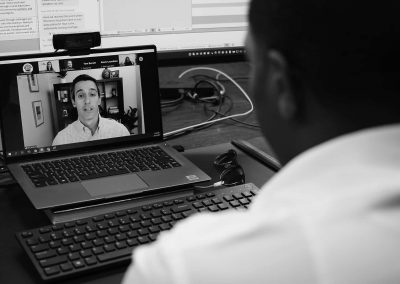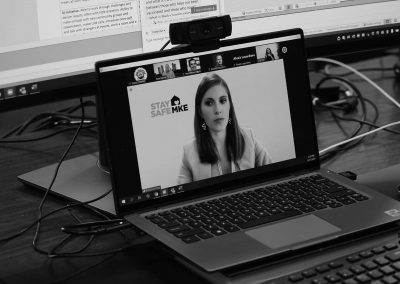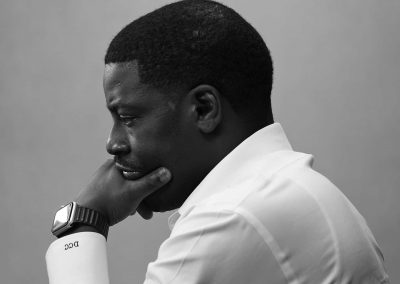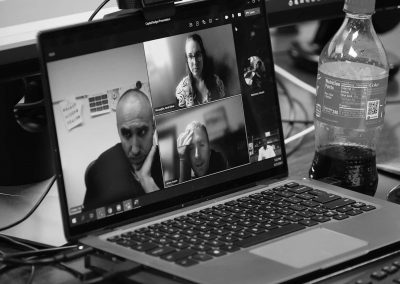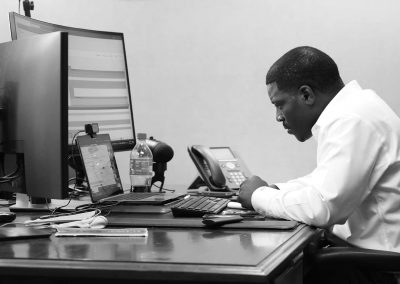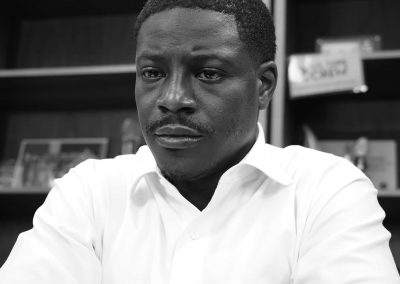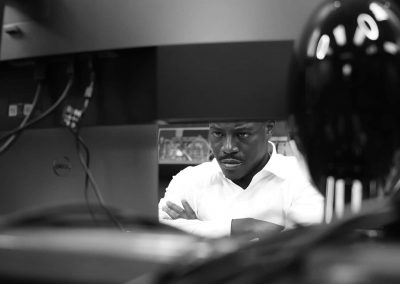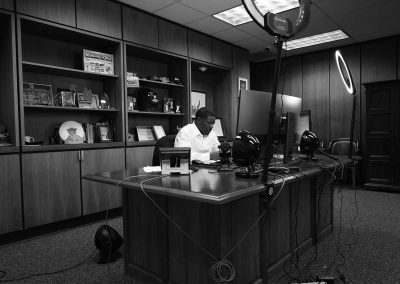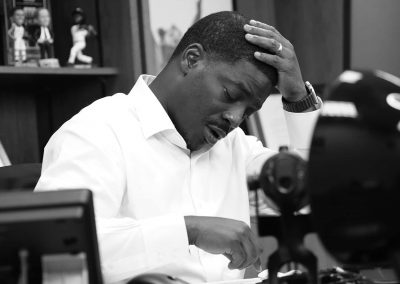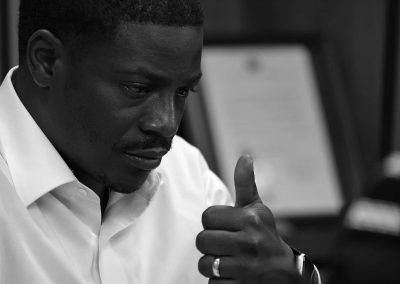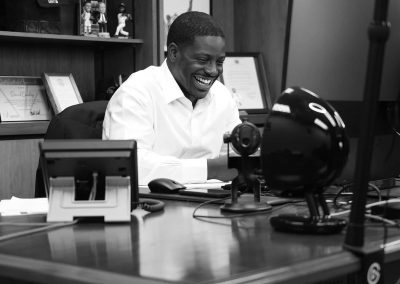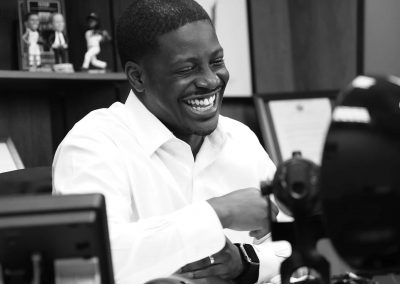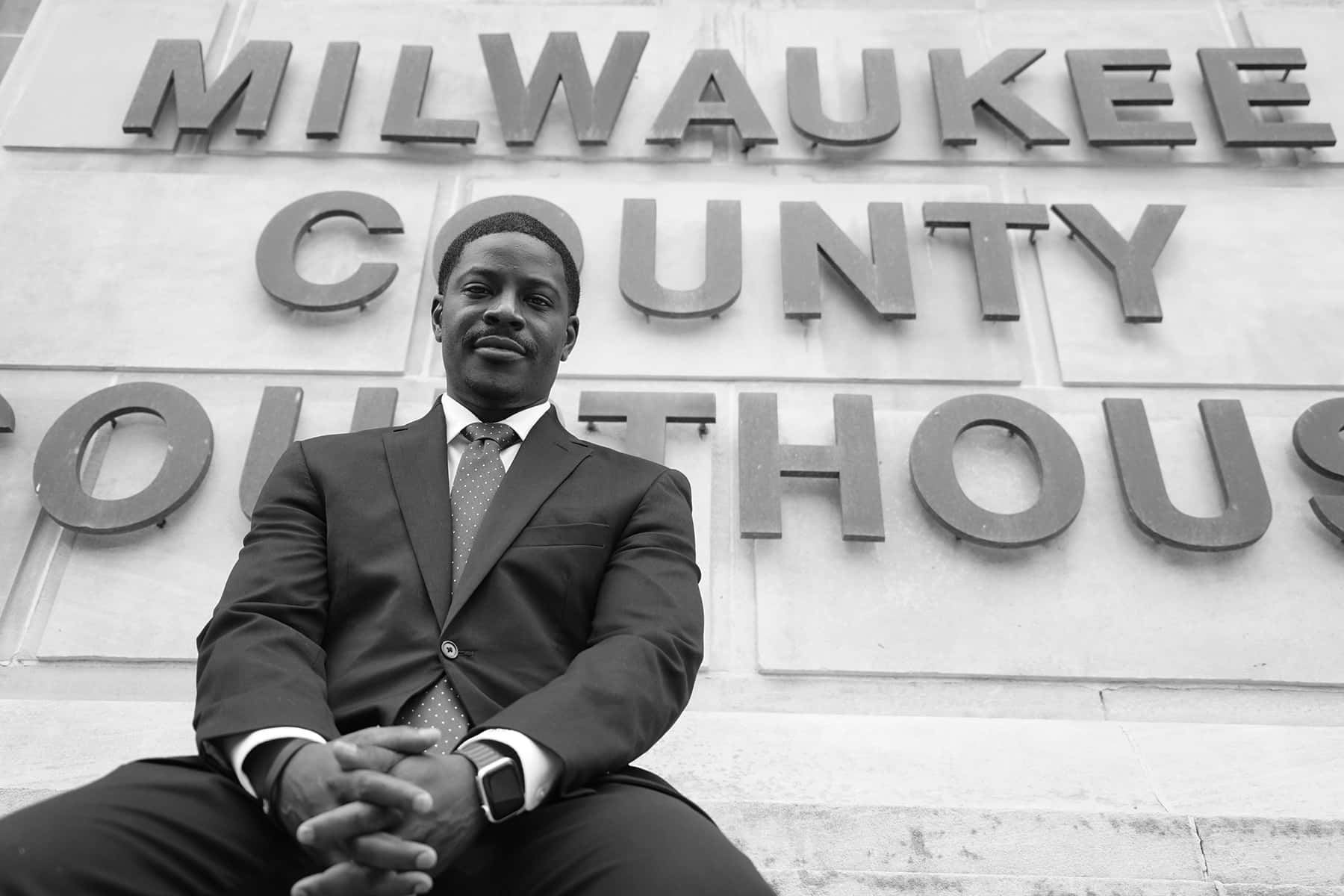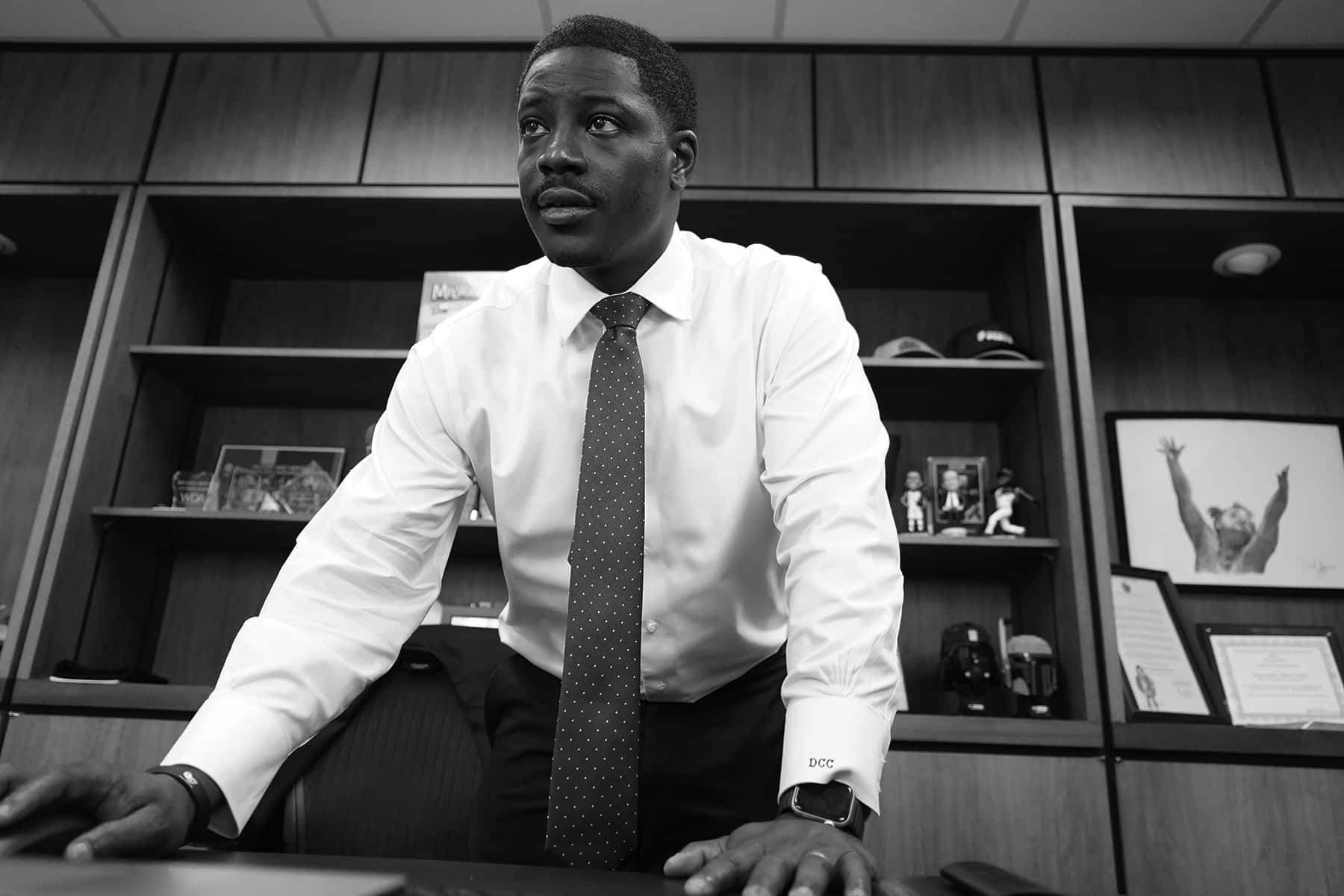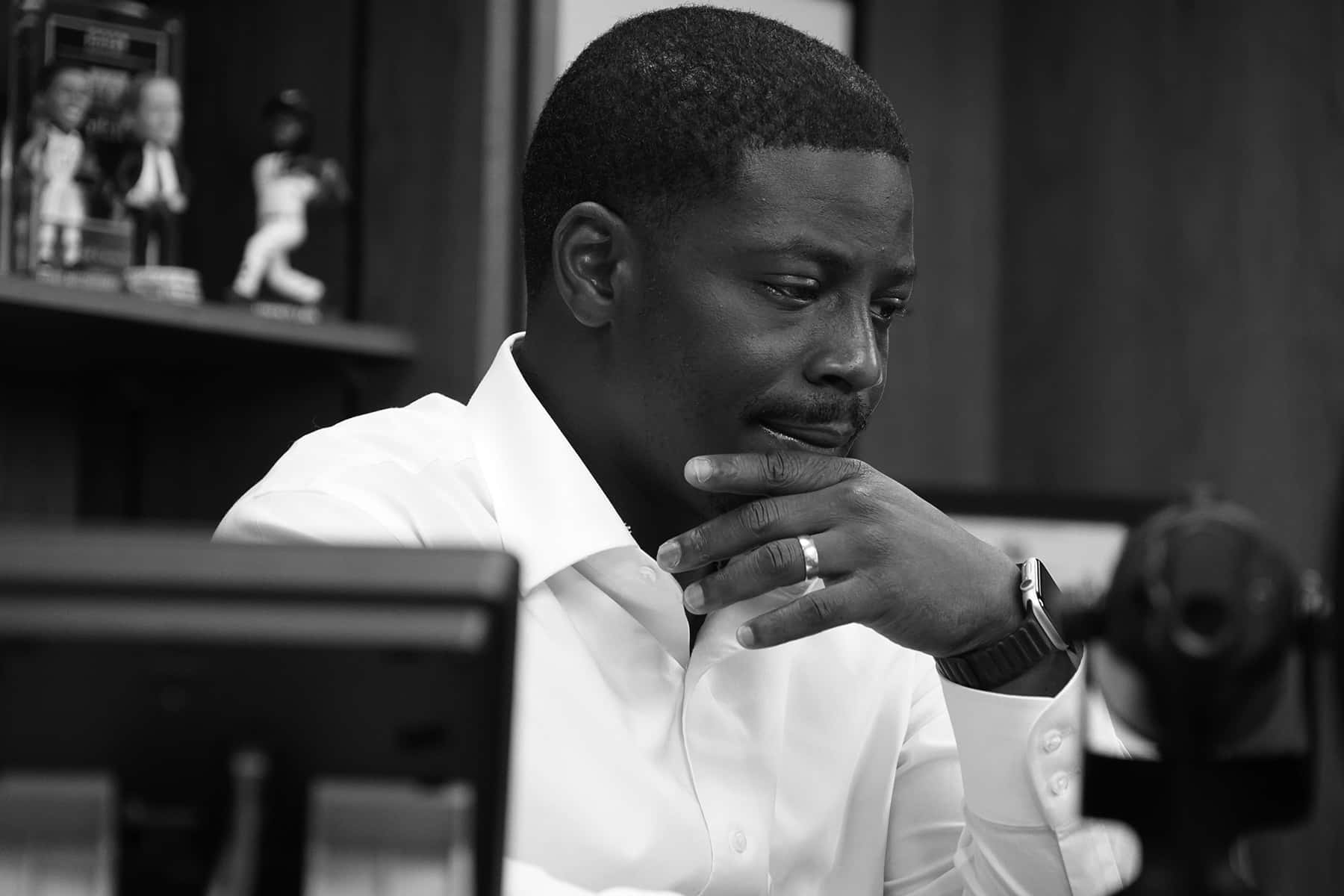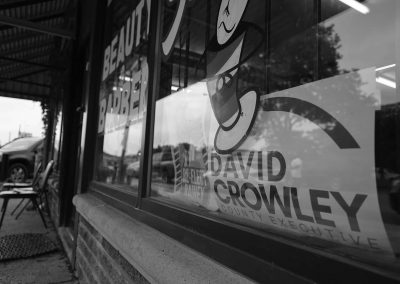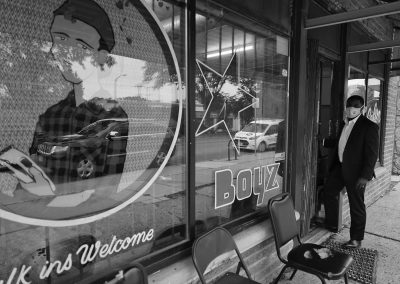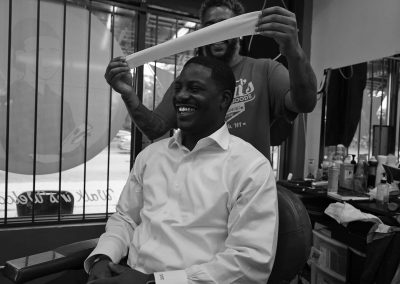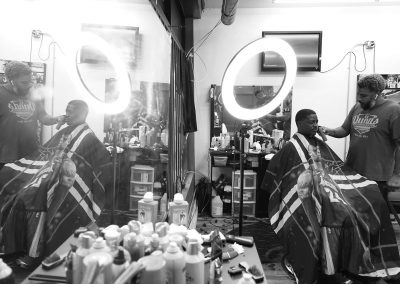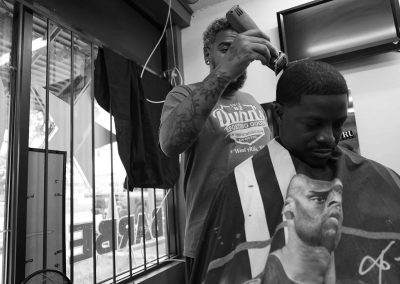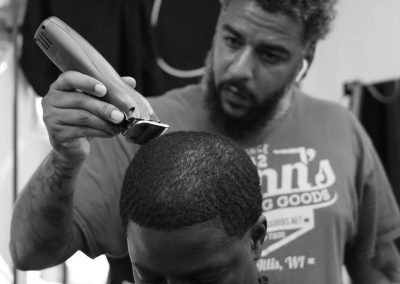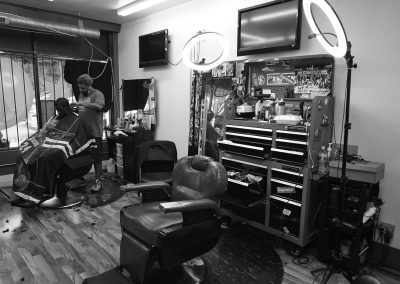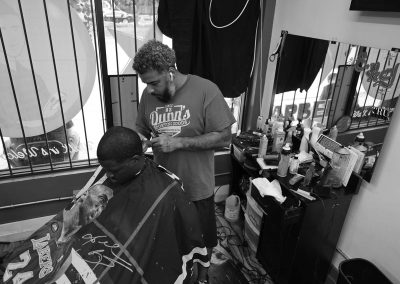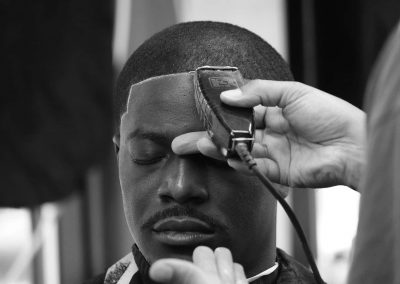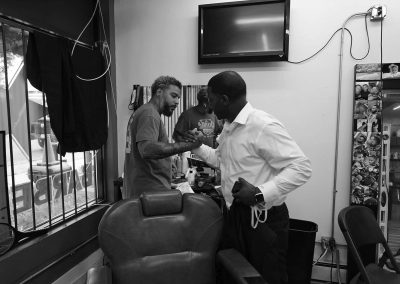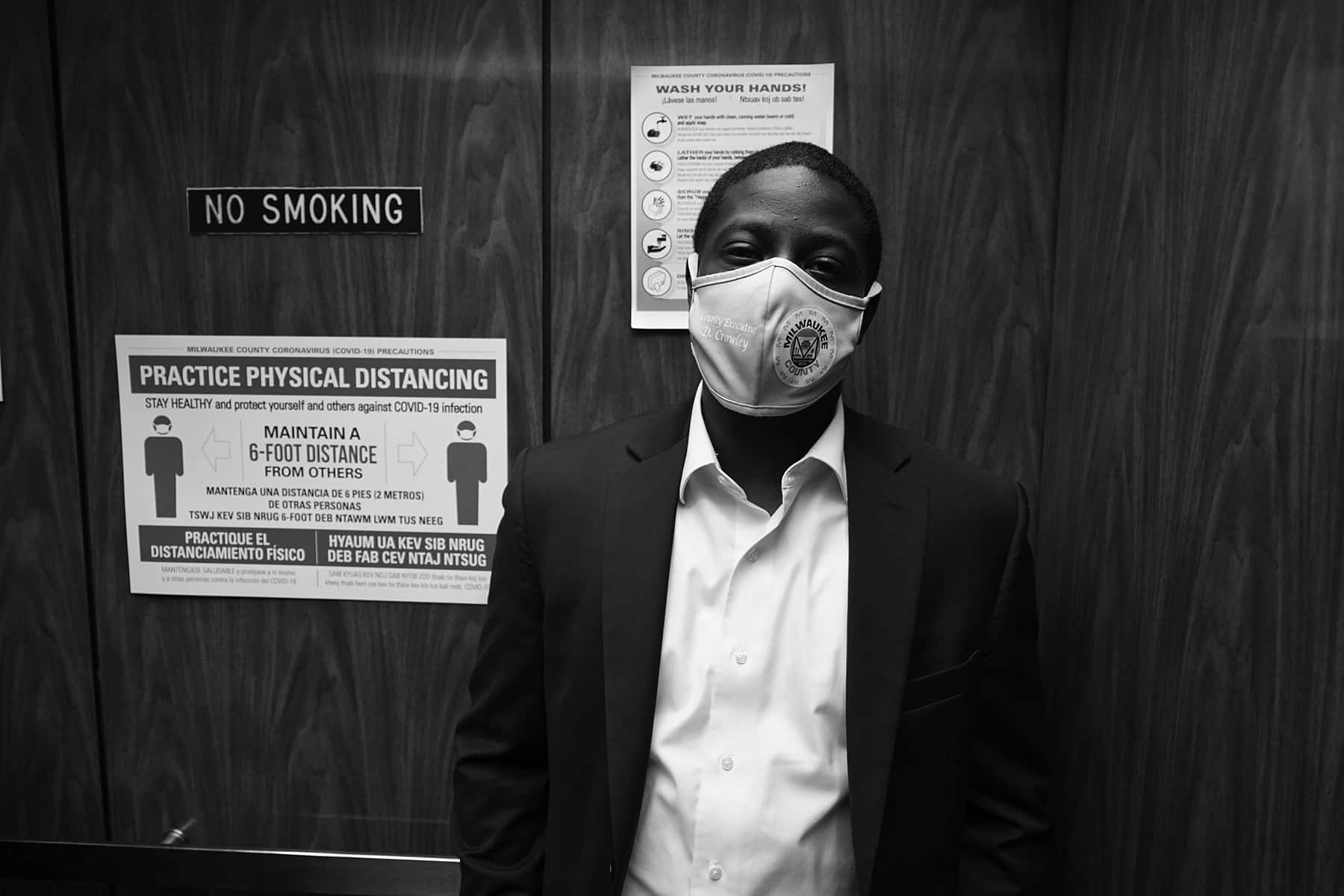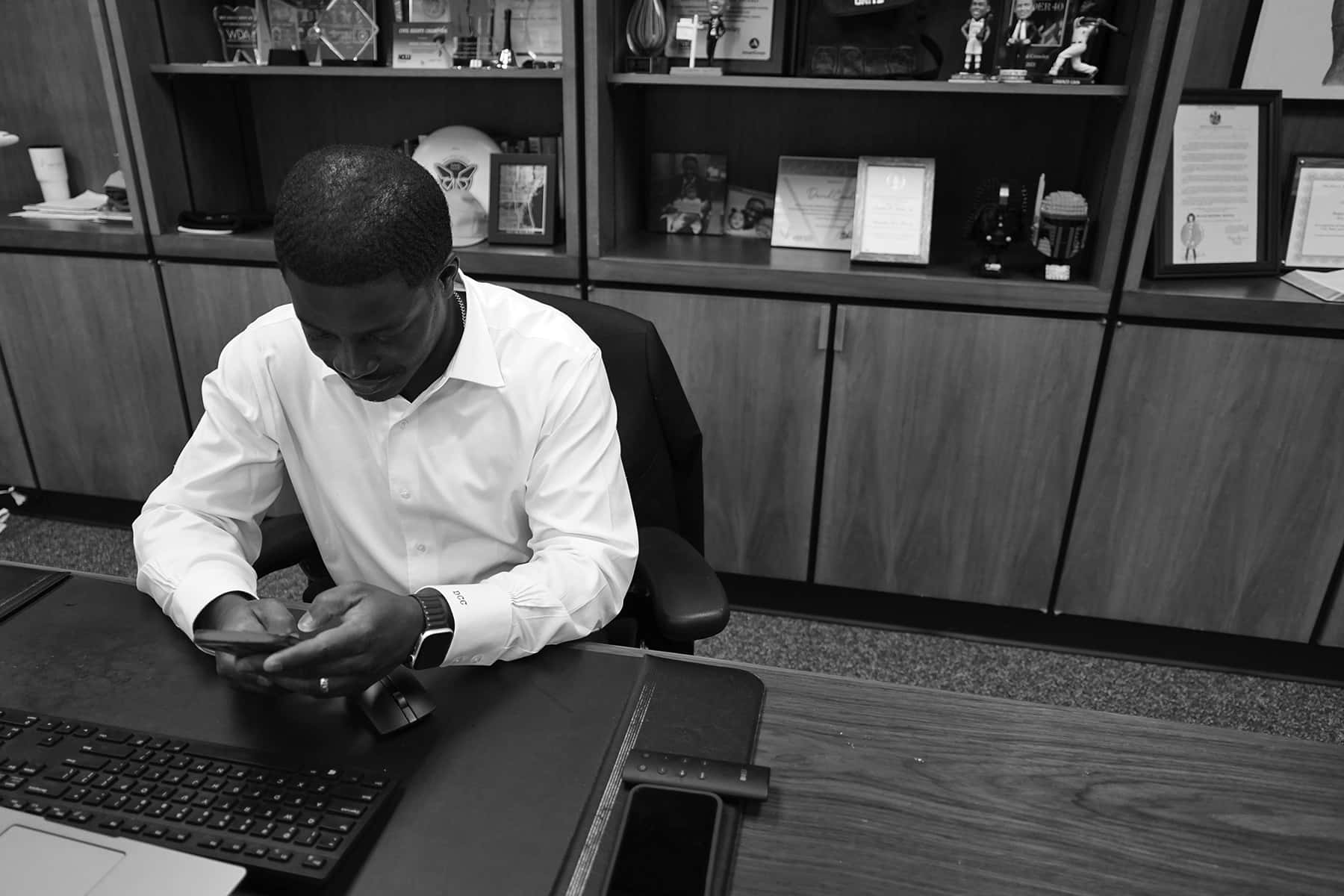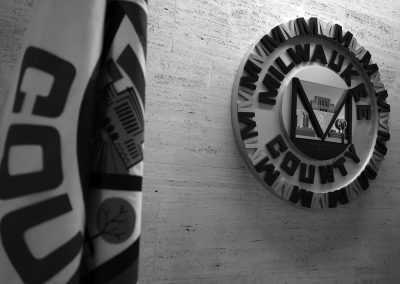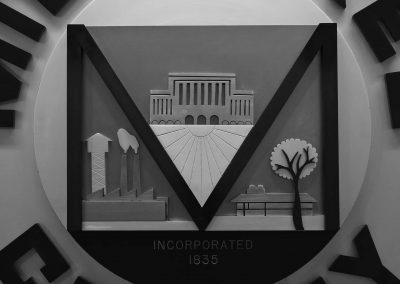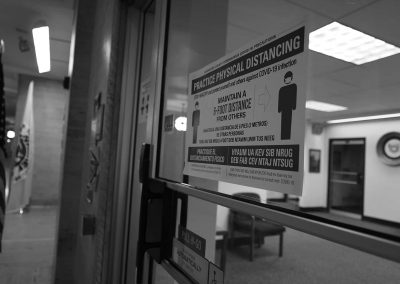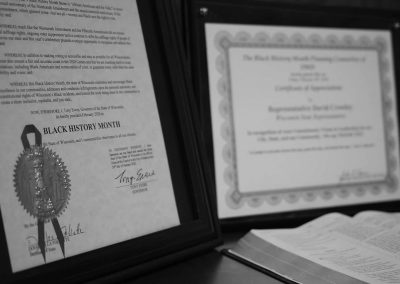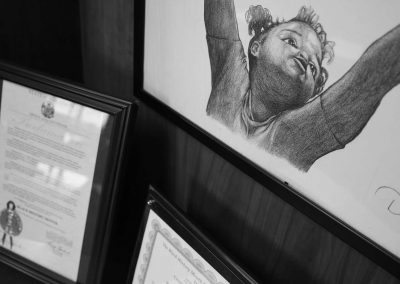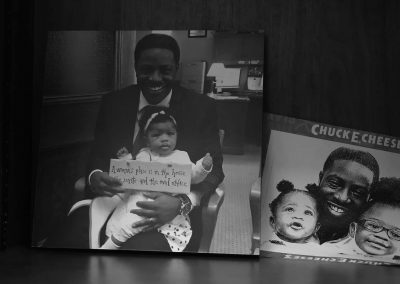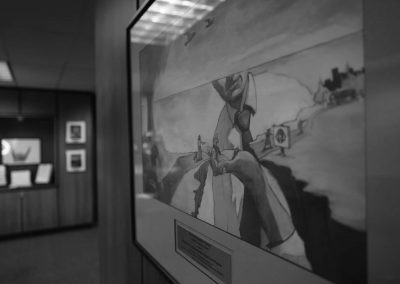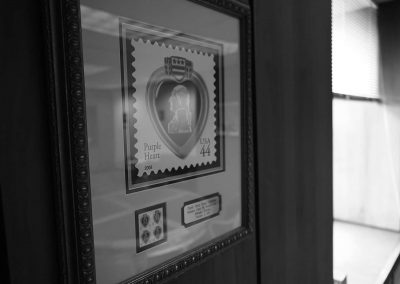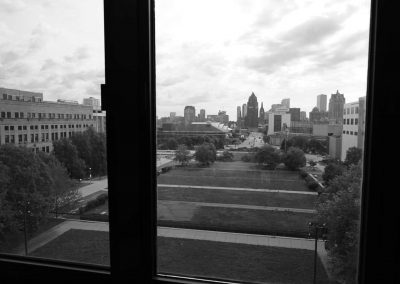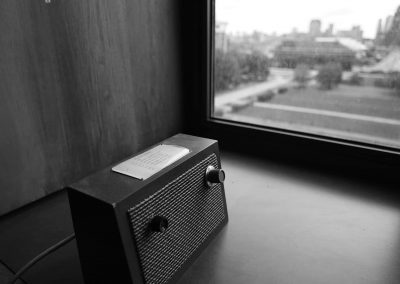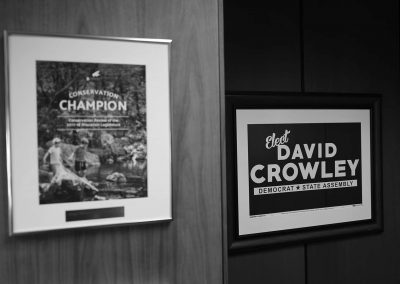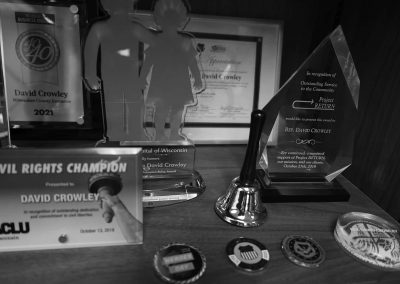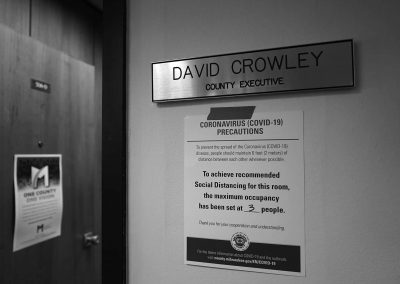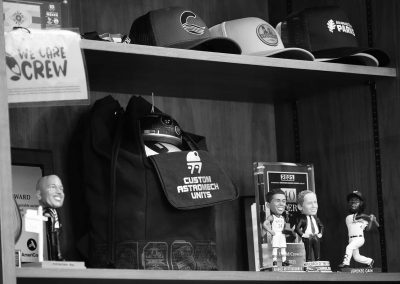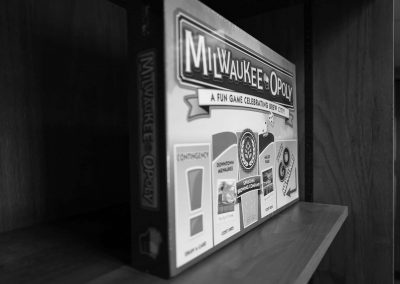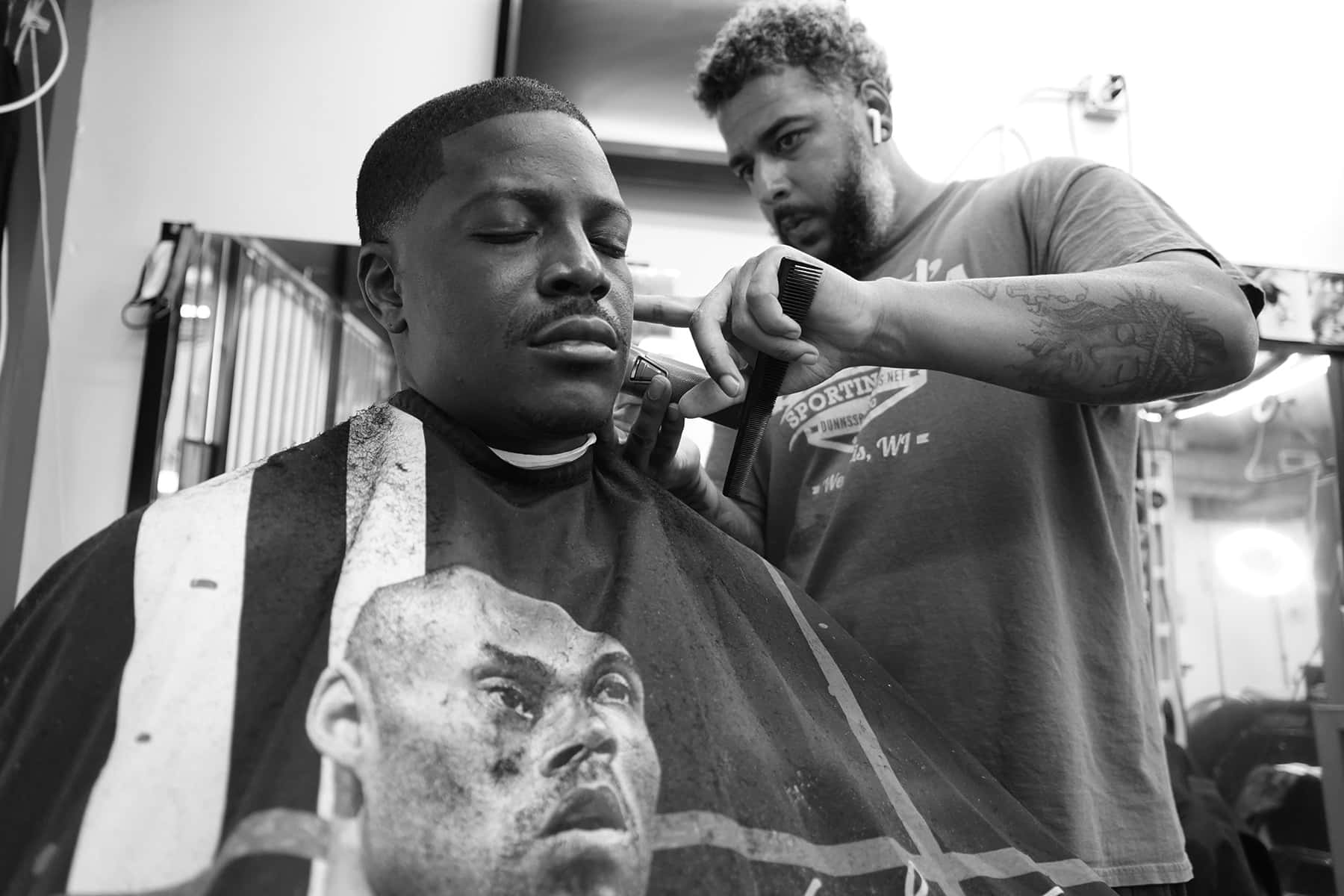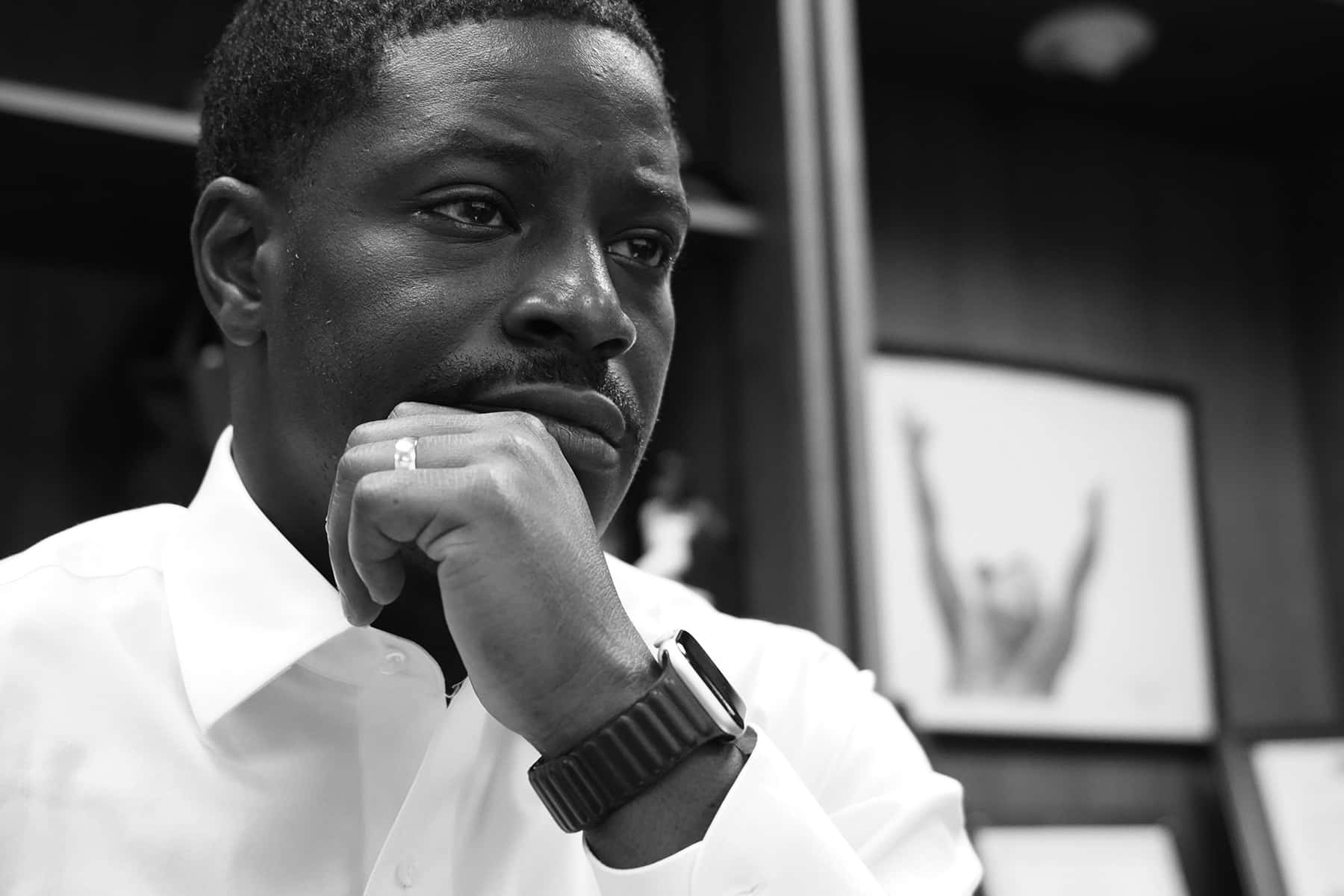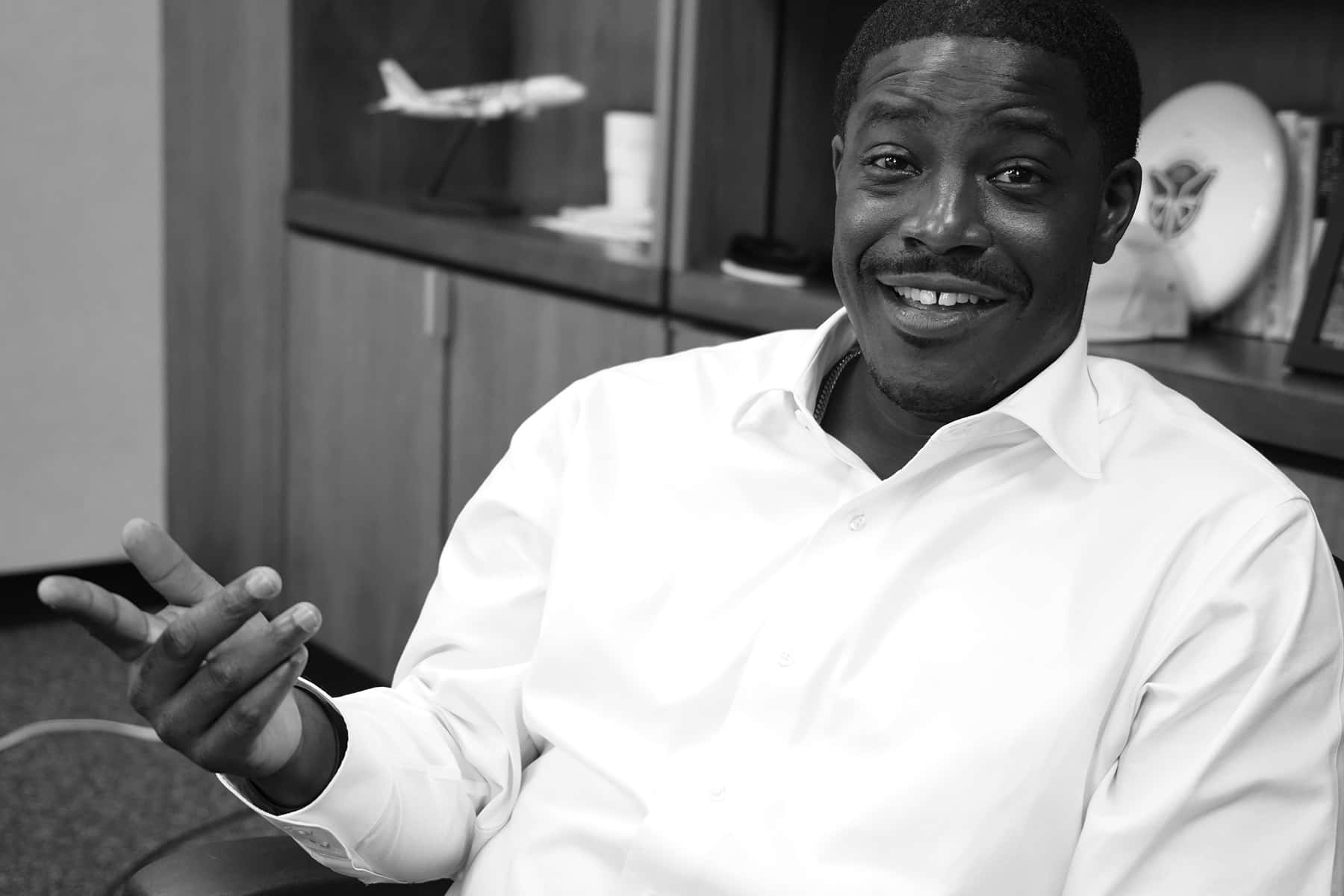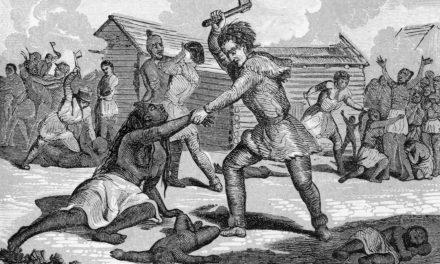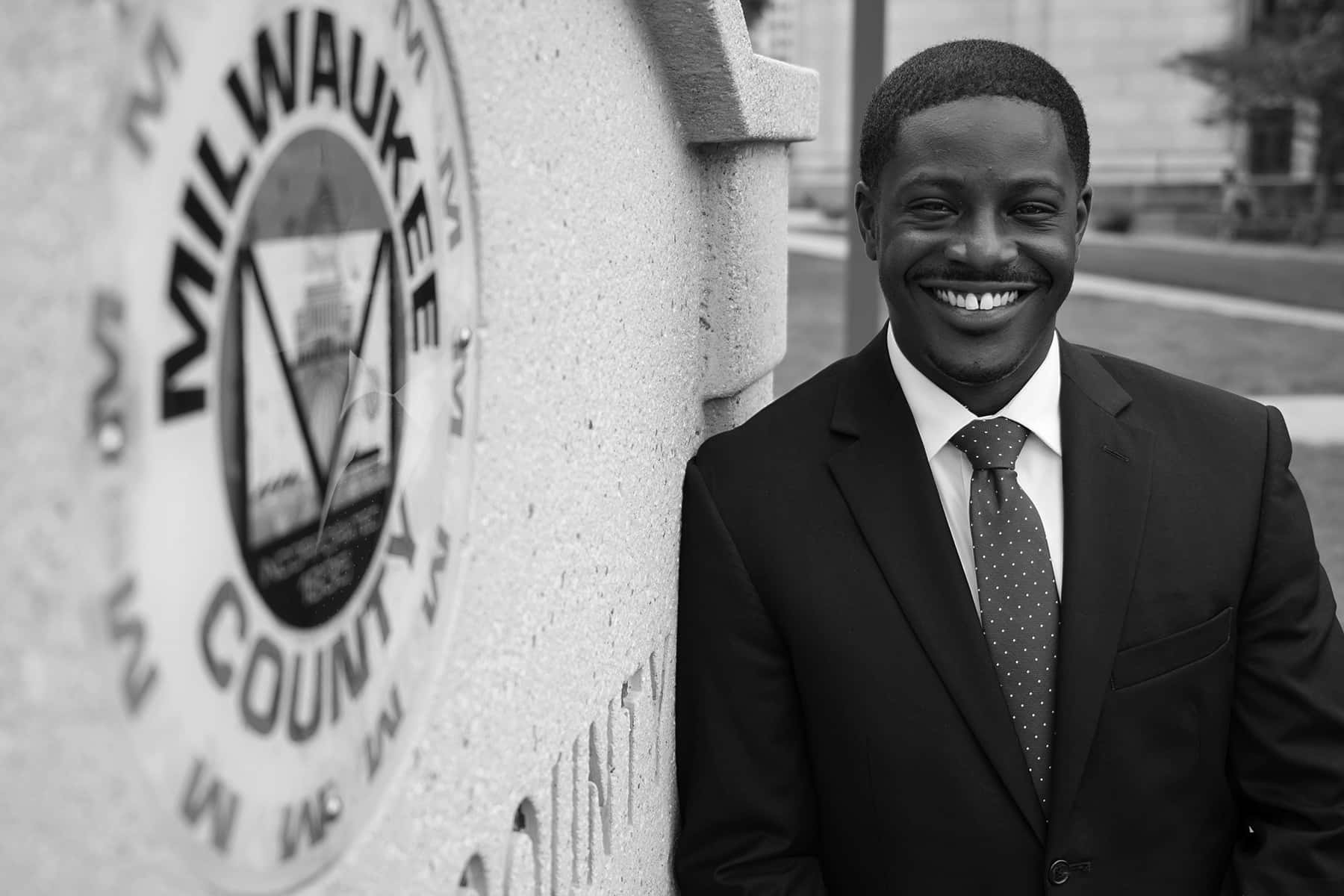
With a love of community and lifelong determination for helping people, David Crowley is part of a new generation of empowered political leaders that answered the call of making Milwaukee County a more equitable place to live.
As the first African American individual elected as Milwaukee County Executive, Crowley took on the responsibility just as the world began shutting down from the pandemic. It was a year of unprecedented uncertainties that required adapting to many new realities, all while striving to fulfill social services for County residents.
Into the second year of his term in office and with ongoing social and economic challenges from the COVID-19 health crisis, Crowley continues to work at fixing the systems that were designed to be broken. From his own personal experiences, he understands that many of those struggles existed long before the pandemic. Now exacerbated and more complicated, his efforts remain focused on how to remedy them so that none of the County’s residents will be left behind.
Q&A with Milwaukee County Executive David Crowley
Milwaukee Independent: Who had the biggest impact on your childhood, and do you still see that influence on your life today?
David Crowley: In childhood, the biggest impact on me were my parents who taught me right from wrong and worked hard to set me on the right the path. I would also credit Reggie and Sharlen Moore who I met at Urban Underground. Their guidance taught me how to love my community, love my people, and fight for what I believe in.
Milwaukee Independent: What is the most memorable experience from your youth growing up in Milwaukee? And what was your greatest fear from that time?
David Crowley: I’ve been to the Northcott Juneteenth festival every year ever since I can remember. It has always been a great time to celebrate our community and our ancestors who sacrificed so much for our way of life today. The only time I’ve missed Juneteenth is when it was held virtually last year due to the pandemic, so having the celebration return in-person this year meant a lot to me and it meant that younger generations would get to enjoy the same festivities that I did.
Milwaukee Independent: What role did housing insecurity and eviction play in your personal development, and what effect does that still have on you now as a father?
David Crowley: Housing insecurity plays a huge role in the personal development of young people who experience it. Evictions can be extremely traumatic, and growing up experience evictions created barriers to creating long lasting relationships with people in the same neighborhood. Urban Underground changed that after I was connected to other like-minded individuals who loved their community and wanted to work to improve it each day. As a father, I continue that work everyday to make sure my three children don’t have to go through the same housing insecurity that I had. Furthermore, I want to make their path as adults even easier than mine. I teach financial literacy in my household and I speak to my daughters about the importance of homeownership, so they can understand how owning a home is a financial asset, and something to work towards as they grow older.
Milwaukee Independent: How did being involved with Urban Underground during your formative years transform your life, and what legacy remains with you today?
David Crowley: Urban Underground had a huge impact on my formative years. Growing up in the City of Milwaukee, you hear a lot of negative things about the city and as a young person its easy to internalize those narratives and believe that the neighborhoods around you have nothing to offer. Urban Underground changed that by teaching me how to love myself, love people in the communities around me, and recognize all the hidden gems in my community worth celebrating. We always don’t look at the resources and the hidden gems we have access to here in Milwaukee. There are parks and trails everywhere throughout the County, we have a top tier Zoo in our backyard, there are fantastic restaurant and entertainment venues in every corner of the county. Each summer, we have access to an entire lakefront and festivals pop up each month celebrating the ethnic diversity that makes our County strong. It took Urban Underground to realize these positive things happening around me and truly appreciate them. That helped me expand my horizon, explore my own values, and bridge gaps to get things done.
Milwaukee Independent: How does your faith guide your personal decisions and community efforts?
David Crowley: My faith plays a big part in my personal decision-making process. It keeps me grounded and focused on my goal of giving back to the community that helped save my life and give me direction. My faith helps me keep my north star in focus and remember that my goal is to make decisions that benefit society, benefit all us today, as well as future generations. As a person of faith, we find ways to bring people together and make their lives better.
Milwaukee Independent: What inspired your interest to become an elected official in Milwaukee, and has the position changed how you view civic leadership?
David Crowley: As an aide I never thought I would run for office, but what peaked my interest was working for then state Senator Nikiya Harris-Dodd. As an aide in her office, I saw someone speaking in the Senate on behalf of thousands who didn’t feel like they could be part of the system or influence any meaningful change. I believe young, black people in the County need a solid voice that comes from the same neighborhoods that we talk about when we discuss making change. Too often, the people leading those discussions are not from those neighborhoods and don’t have the same lived experience as the people who live there. It’s important that people know they have a voice, they can be involved in the process, and make a difference.
Milwaukee Independent: What was the biggest frustration or limitation that you experienced in your first year as Milwaukee County Executive?
David Crowley: I was sworn-in during a pandemic and immediately hit the ground running figuring out how the County could assist in the statewide pandemic response and quickly give people the emergency care and relief they needed. I’m proud of the way we’ve responded to the pandemic and helped thousands of people stay in their homes, keep their businesses afloat, and more. But, the pandemic itself was a public health emergency no one saw coming, so it was the ultimate curveball for many new public officials around the country.
Milwaukee Independent: What did you learn about yourself when COVID-19 first hit Milwaukee, and how has the pandemic changed you?
David Crowley: With so many efforts to stop the spread of COVID-19 happening all at once between the state and the municipalities within the county, the pandemic really highlighted my collaborative leadership style. From the start of the pandemic it’s been a priority to bring all the stakeholders to the table at the same time to find solutions and streamline our efforts. The focus on collaboration has been well received and it is my hope that this experience will yield stronger relationships and a stronger county all working together as one to achieve our goals. I also realized just how much I love connecting with people. I’ve also been a social person and I took for granted the ability to connect with someone face-to-face. Over the last year, we’ve had to do so much work and collaboration remotely, that it brought to the surface just how important face-to-face interaction is to me.
Milwaukee Independent: What are some of the particular difficulties of being a Black politician in Milwaukee that your White counterparts are not susceptible to?
David Crowley: The hardest thing to deal with is that when I speak about racial equity and righting the wrongs of the past, many people believe that I only want to do things for Black people, and that’s just not true. Generations of poor distribution and investment for those who need it the most have led to Milwaukee County being named the second unhealthiest county in our state. And, yes, historically racist policies of our institutions have unequally distributed critical services—like health care, job opportunities, and high-quality education—to white communities over Black and brown communities. But addressing these issues doesn’t mean just working on behalf of Black and brown people, it means addressing the root causes of unequally distributed services and ensuring that they work for everyone. So, the key is helping everyone understand that victories in equity are victories for everyone. Once people understand that we all benefit when they system works for everyone, that’s when we begin to see the creative and enthusiasm about working together and moving forward.
Milwaukee Independent: Aside from the obvious joy of a hometown win, what did it mean to you when the Milwaukee Bucks earned their NBA championship?
David Crowley: I’m a lifelong Bucks fan, so to see them win their first championship in 50 years was a dream come true. It couldn’t have come at a better time either for a city that really needed a win after a very tough year. To me, it means what I’ve always known: Milwaukee is able to handle being in the national spotlight. I hope others are also waking up to the idea of Milwaukee being on the national stage, not just in sports, but as a destination for people all over the country.
Milwaukee Independent: With institutional racism baked into Milwaukee’s DNA, is change even possible? And, what gives you hope for the future?
David Crowley: Yes, change is possible, but it won’t be easy. It’s going to take us continuing to build off the momentum of the last year and continuing to bring everyone to the table in order to find solutions. I’m hopeful because of the leadership at all levels throughout the County that are bought into our shared vision. Not only are leaders in Milwaukee County government on board, leaders in different municipalities and business sectors are buying into the vision and working as key partners in our vision to achieve racial equity.
Milwaukee Independent: What advice would you offer children of color to pursue their dreams even when faced with setbacks?
David Crowley: One of my favorite quotes is Yoda’s “Do or do not, there is no try.” I think we can all learn from our failures and our mistakes, so my advice to you people is to not be afraid of setbacks. Every failure is an opportunity to learn, grow, and be better. The only time failure becomes a problem is when we don’t learn from those moments. Another one of my favorite quotes isn’t attributed to anyone, but it goes “You all laugh at me because I’m different, but I laugh at you all because you’re the same.” I enjoy that message because it highlights something many of us don’t realize until we’re adults: it is okay to be different. As a kid, you can sometimes get bullied for being different, but my advice to young people is to embrace their differences and try to understand how it is a strength to whatever you’re trying to do in the future.
Milwaukee Independent: What is the most common question you are asked, and what does no one ever ask you about that you wish they would?
David Crowley: The most common question is if I like my job and the answer is always yes. I wish more people would ask how they can be involved in our vision. The momentum we’ve gathered over the last year towards reaching our racial equity goals has been fantastic, but to create change we’re going to need everyone bought-in to the vision and committed to doing their part. I also wish more people were aware of the opportunity in front of us to double-down on investing in Milwaukee like we did just a few years ago with the Fiserv Forum. This is a pivotal point in time, with the national spotlight on Milwaukee, we can take advantage of the historic tourism spending, visitor spending from Summerfest and our festivals, Brewer games, and of course, future Bucks playoff games. That’s why I’m continuing to advocate for a local option sales tax. It is an opportunity to provide Milwaukee the ability to continue as a globally competitive metro region and the state’s economic engine. If Milwaukee is provided the ability to leverage our economic growth, we can put those dollars to work, investing in regional assets and county services to improve the quality of life that attracts energized talent, new businesses, and capital investment. With the right tools, Milwaukee can continue being an asset for the state, by attracting investment and employees, while generating higher economic output.
Milwaukee Independent: If you could send a message forward in time to yourself at age 60-years-old, what would you ask? Did you accomplish your goals, and was it all worth it?
David Crowley: I hope that I can say I accomplished my goals at age 60, but even at that age I’d want to continue to encourage others to go further and go farther than what I accomplished. At age 60, I hope my health is still good and that I can see my three daughters continue to grow and become successes of their own. If I can remain in good health to enjoy their future success, then it will have been worth the effort.
PHOTOJOURNALIST’S NOTE: This photo essay follows the artistic style used in previous “A Day in Photos” features. Monochrome images are timeless, and express emotion far better than color photographs – which communicate information. By removing the color spectrum, the images were equalized so that viewers could see them as part of the same narrative regardless of where they were taken. That visual aesthetic turned out to be especially useful, since this feature was produced during the pandemic.
“A Day in Photos” for previous features literally meant that a single day was set aside to document the life of an individual in images, and only what happened on that day was recorded. However, the disruption of COVID-19 has required a lot of changes and adaptations from what was normal or traditional, and that remained true for this feature as well.
All of the images in the collection were photographed in a single day, except one segment that was coincidentally taken on the previous day. Because of health safety protocols and the transition to virtual events has had a continued impact on what in pre-pandemic times would be a more robust schedule, the inclusion of the single in-person event served to better express and represent the visual story.
Even as some aspects of daily life have returned to a familiarity that resembles the concept of normal, there remains residual habits that may be long lasting or permanent. Zoom meetings, for example, continue to be a viable replacement for what would have been in-person gatherings. And when to wear masks depends on the location and the proximity of individuals.
Finding ways to take pictures in this situation was a creative challenge. This photo essay is the second produced under pandemic conditions. The previous feature documented what was believed to be a transitional period, as widespread vaccinations allowed the COVID-19 lockdowns to fade. For this feature, the images were taken under the cloud of vaccination-denial that was compounded by the highly infectious Delta variant of COVID-19.
The pictures from this “day” present a historical record of what life was like during this unpredictable phase of the pandemic in Milwaukee. And it offers a look at the leadership of the county given the responsibility to provide for the needs of local residents during an unprecedented time.

